#i think i was like 17 i’d Heard of the distillers but never listened to them bc the name didn’t sound interesting to me LMAO
Text
every day i am thankful that in 2006 or whenever there was a q&a where some fan asked gerard way what makes mcr so cool and that he said let me answer your question with another question: what makes brody dalle so hot and that i read that & immediately proceeded to google brody dalle and discover the distillers bc now i get 2 routinely listen to coral fang and have my soul fully leave my body whatthe FUCKKKKKM
#i think i was like 17 i’d Heard of the distillers but never listened to them bc the name didn’t sound interesting to me LMAO#guy who discovered Everything by way of mcr 🙄🙄🙄🙄🙄
194 notes
·
View notes
Link
Taylor Swift broke all her rules with Folklore — and gave herself a much-needed escape
The pop star, one of EW's 2020 Entertainers of the Year, delves deep into her surprise eighth album, Rebekah Harkness, and a Joe Biden presidency.
By Alex Suskind
“He is my co-writer on ‛Betty’ and ‛Exile,’” replies Taylor Swift with deadpan precision. The question Who is William Bowery? was, at the time we spoke, one of 2020’s great mysteries, right up there with the existence of Joe Exotic and the sudden arrival of murder hornets. An unknown writer credited on the year’s biggest album? It must be an alias.
Is he your brother?
“He’s William Bowery,” says Swift with a smile.
It's early November, after Election Day but before Swift eventually revealed Bowery's true identity to the world (the leading theory, that he was boyfriend Joe Alwyn, proved prescient). But, like all Swiftian riddles, it was fun to puzzle over for months, particularly in this hot mess of a year, when brief distractions are as comforting as a well-worn cardigan. Thankfully, the Bowery... erhm, Alwyn-assisted Folklore — a Swift project filled with muted pianos and whisper-quiet snares, recorded in secret with Jack Antonoff and the National’s Aaron Dessner — delivered.
“The only people who knew were the people I was making it with, my boyfriend, my family, and a small management team,” Swift, 30, tells EW of the album's hush-hush recording sessions. That gave the intimate Folklore a mystique all its own: the first surprise Taylor Swift album, one that prioritized fantastical tales over personal confessions.
“Early in quarantine, I started watching lots of films,” she explains. “Consuming other people’s storytelling opened this portal in my imagination and made me feel like, Why have I never created characters and intersecting storylines?” That’s how she ended up with three songs about an imagined love triangle (“Cardigan,” “Betty,” “August”), one about a clandestine romance (“Illicit Affairs”), and another chronicling a doomed relationship (“Exile”). Others tell of sumptuous real-life figures like Rebekah Harkness, a divorcee who married the heir to Standard Oil — and whose home Swift purchased 31 years after her death. The result, “The Last Great American Dynasty,” hones in on Harkness’ story, until Swift cleverly injects herself.
And yet, it wouldn’t be a Swift album without a few barbed postmortems over her own history. Notably, “My Tears Ricochet” and “Mad Woman," which touch on her former label head Scott Borchetta selling the masters to Swift’s catalog to her known nemesis Scooter Braun. Mere hours after our interview, the lyrics’ real-life origins took a surprising twist, when news broke that Swift’s music had once again been sold, to another private equity firm, for a reported $300 million. Though Swift ignored repeated requests for comment on the transaction, she did tweet a statement, hitting back at Braun while noting that she had begun re-recording her old albums — something she first promised in 2019 as a way of retaining agency over her creative legacy. (Later, she would tease a snippet of that reimagined work, with a new version of her hit 2008 single "Love Story.")
Like surprise-dropping Folklore, like pissing off the president by endorsing his opponents, like shooing away haters, Swift does what suits her. “I don’t think we often hear about women who did whatever the hell they wanted,” she says of Harkness — something Swift is clearly intent on changing. For her, that means basking in the world of, and favorable response to, Folklore. As she says in our interview, “I have this weird thing where, in order to create the next thing, I attack the previous thing. I don’t love that I do that, but it is the thing that has kept me pivoting to another world every time I make an album. But with this one, I still love it.”
ENTERTAINMENT WEEKLY: We’ve spent the year quarantined in our houses, trying to stay healthy and avoiding friends and family. Were you surprised by your ability to create and release a full album in the middle of a pandemic?
TAYLOR SWIFT: I was. I wasn't expecting to make an album. Early on in quarantine, I started watching lots of films. We would watch a different movie every night. I'm ashamed to say I hadn't seen Pan's Labyrinth before. One night I'd watch that, then I'd watch L.A. Confidential, then we'd watch Rear Window, then we'd watch Jane Eyre. I feel like consuming other people's art and storytelling sort of opened this portal in my imagination and made me feel like, "Well, why have I never done this before? Why have I never created characters and intersecting storylines? And why haven't I ever sort of freed myself up to do that from a narrative standpoint?" There is something a little heavy about knowing when you put out an album, people are going to take it so literally that everything you say could be clickbait. It was really, really freeing to be able to just be inspired by worlds created by the films you watch or books you've read or places you've dreamed of or people that you've wondered about, not just being inspired by your own experience.
In that vain, what's it like to sit down and write something like “Betty,” which is told from the perspective of a 17-year-old boy?
That was huge for me. And I think it came from the fact that my co-writer, William Bowery [Joe Alwyn], is male — and he was the one who originally thought of the chorus melody. And hearing him sing it, I thought, "That sounds really cool." Obviously, I don't have a male voice, but I thought, "I could have a male perspective." Patty Griffin wrote this song, “Top of the World.” It's one of my favorite songs of all time, and it's from the perspective of this older man who has lived a life full of regret, and he's kind of taking stock of that regret. So, I thought, "This is something that people I am a huge fan of have done. This would be fun to kind of take this for a spin."
What are your favorite William Bowery conspiracies?
I love them all individually and equally. I love all the conspiracy theories around this album. [With] "Betty," Jack Antonoff would text me these articles and think pieces and in-depth Tumblr posts on what this love triangle meant to the person who had listened to it. And that's exactly what I was hoping would happen with this album. I wrote these stories for a specific reason and from a specific place about specific people that I imagined, but I wanted that to all change given who was listening to it. And I wanted it to start out as mine and become other people's. It's been really fun to watch.
One of the other unique things about Folklore — the parameters around it were completely different from anything you'd done. There was no long roll out, no stadium-sized pop anthems, no aiming for the radio-friendly single. How fearful were you in avoiding what had worked in the past?
I didn't think about any of that for the very first time. And a lot of this album was kind of distilled down to the purest version of what the story is. Songwriting on this album is exactly the way that I would write if I considered nothing else other than, "What words do I want to write? What stories do I want to tell? What melodies do I want to sing? What production is essential to tell those stories?" It was a very do-it-yourself experience. My management team, we created absolutely everything in advance — every lyric video, every individual album package. And then we called our label a week in advance and said, "Here's what we have.” The photo shoot was me and the photographer walking out into a field. I'd done my hair and makeup and brought some nightgowns. These experiences I was used to having with 100 people on set, commanding alongside other people in a very committee fashion — all of a sudden it was me and a photographer, or me and my DP. It was a new challenge, because I love collaboration. But there's something really fun about knowing what you can do if it's just you doing it.
Did you find it freeing?
I did. Every project involves different levels of collaboration, because on other albums there are things that my stylist will think of that I never would've thought of. But if I had all those people on the photo shoot, I would've had to have them quarantine away from their families for weeks on end, and I would've had to ask things of them that I didn't think were fair if I could figure out a way to do it [myself]. I had this idea for the [Folklore album cover] that it would be this girl sleepwalking through the forest in a nightgown in 1830 [laughs]. Very specific. A pioneer woman sleepwalking at night. I made a moodboard and sent it to Beth [Garrabrant], who I had never worked with before, who shoots only on film. We were just carrying bags across a field and putting the bags of film down, and then taking pictures. It was a blast.
Folklore includes plenty of intimate acoustic echoes to what you've done in the past. But there are also a lot of new sonics here, too — these quiet, powerful, intricately layered harmonics. What was it like to receive the music from Aaron and try to write lyrics on top of it?
Well, Aaron is one of the most effortlessly prolific creators I've ever worked with. It's really mind-blowing. And every time I've spoken to an artist since this whole process [began], I said, "You need to work with him. It'll change the way you create." He would send me these — he calls them sketches, but it's basically an instrumental track. the second day — the day after I texted him and said, "Hey, would you ever want to work together?" — he sent me this file of probably 30 of these instrumentals and every single one of them was one of the most interesting, exciting things I had ever heard. Music can be beautiful, but it can be lacking that evocative nature. There was something about everything he created that is an immediate image in my head or melody that I came up with. So much so that I'd start writing as soon as I heard a new one. And oftentimes what I would send back would inspire him to make more instrumentals and then send me that one. And then I wrote the song and it started to shape the project, form-fitted and customized to what we wanted to do.
It was weird because I had never made an album and not played it for my girlfriends or told my friends. The only people who knew were the people that I was making it with, my boyfriend, my family, and then my management team. So that's the smallest number of people I've ever had know about something. I'm usually playing it for everyone that I'm friends with. So I had a lot of friends texting me things like, "Why didn't you say on our everyday FaceTimes you were making a record?"
Was it nice to be able to keep it a secret?
Well, it felt like it was only my thing. It felt like such an inner world I was escaping to every day that it almost didn't feel like an album. Because I wasn't making a song and finishing it and going, "Oh my God, that is catchy.” I wasn't making these things with any purpose in mind. And so it was almost like having it just be mine was this really sweet, nice, pure part of the world as everything else in the world was burning and crashing and feeling this sickness and sadness. I almost didn't process it as an album. This was just my daydream space.
Does it still feel like that?
Yeah, because I love it so much. I have this weird thing that I do when I create something where in order to create the next thing I kind of, in my head, attack the previous thing. I don't love that I do that but it is the thing that has kept me pivoting to another world every time I make an album. But with this one, I just still love it. I'm so proud of it. And so that feels very foreign to me. That doesn't feel like a normal experience that I've had with releasing albums.
When did you first learn about Rebekah Harkness?
Oh, I learned about her as soon as I was being walked through [her former Rhode Island] home. I got the house when I was in my early twenties as a place for my family to congregate and be together. I was told about her, I think, by the real estate agent who was walking us through the property. And as soon as I found out about her, I wanted to know everything I could. So I started reading. I found her so interesting. And then as more parallels began to develop between our two lives — being the lady that lives in that house on the hill that everybody gets to gossip about — I was always looking for an opportunity to write about her. And I finally found it.
I love that you break the fourth wall in the song. Did you go in thinking you’d include yourself in the story?
I think that in my head, I always wanted to do a country music, standard narrative device, which is: the first verse you sing about someone else, the second verse you sing about someone else who's even closer to you, and then in the third verse, you go, "Surprise! It was me.” You bring it personal for the last verse. And I'd always thought that if I were to tell that story, I would want to include the similarities — our lives or our reputations or our scandals.
How often did you regale friends about the history of Rebekah and Holiday House while hanging out at Holiday House?
Anyone who's been there before knows that I do “The Tour,” in quotes, where I show everyone through the house. And I tell them different anecdotes about each room, because I've done that much research on this house and this woman. So in every single room, there's a different anecdote about Rebekah Harkness. If you have a mixed group of people who've been there before and people who haven't, [the people who’ve been there] are like, "Oh, she's going to do the tour. She's got to tell you the story about how the ballerinas used to practice on the lawn.” And they'll go get a drink and skip it because it's the same every time. But for me, I'm telling the story with the same electric enthusiasm, because it's just endlessly entertaining to me that this fabulous woman lived there. She just did whatever she wanted.
There are a handful of songs on Folklore that feel like pretty clear nods to your personal life over the last year, including your relationships with Scott Borchetta and Scooter Braun. How long did it take to crystallize the feelings you had around both of them into “My Tears Ricochet” or “Mad Woman”?
I found myself being very triggered by any stories, movies, or narratives revolving around divorce, which felt weird because I haven't experienced it directly. There’s no reason it should cause me so much pain, but all of a sudden it felt like something I had been through. I think that happens any time you've been in a 15-year relationship and it ends in a messy, upsetting way. So I wrote “My Tears Ricochet” and I was using a lot of imagery that I had conjured up while comparing a relationship ending to when people end an actual marriage. All of a sudden this person that you trusted more than anyone in the world is the person that can hurt you the worst. Then all of a sudden the things that you have been through together, hurt. All of a sudden, the person who was your best friend is now your biggest nemesis, etc. etc. etc. I think I wrote some of the first lyrics to that song after watching Marriage Story and hearing about when marriages go wrong and end in such a catastrophic way. So these songs are in some ways imaginary, in some ways not, and in some ways both.
How did it feel to drop an F-bomb on "Mad Woman"?
F---ing fantastic.
And that’s the first time you ever recorded one on a record, right?
Yeah. Every rule book was thrown out. I always had these rules in my head and one of them was, You haven't done this before, so you can't ever do this. “Well, you've never had an explicit sticker, so you can't ever have an explicit sticker.” But that was one of the times where I felt like you need to follow the language and you need to follow the storyline. And if the storyline and the language match up and you end up saying the F-word, just go for it. I wasn't adhering to any of the guidelines that I had placed on myself. I decided to just make what I wanted to make. And I'm really happy that the fans were stoked about that because I think they could feel that. I'm not blaming anyone else for me restricting myself in the past. That was all, I guess, making what I want to make. I think my fans could feel that I opened the gate and ran out of the pasture for the first time, which I'm glad they picked up on because they're very intuitive.
Let’s talk about “Epiphany.” The first verse is a nod to your grandfather, Dean, who fought in World War II. What does his story mean to you personally?
I wanted to write about him for awhile. He died when I was very young, but my dad would always tell this story that the only thing that his dad would ever say about the war was when somebody would ask him, "Why do you have such a positive outlook on life?" My grandfather would reply, "Well, I'm not supposed to be here. I shouldn't be here." My dad and his brothers always kind of imagined that what he had experienced was really awful and traumatic and that he'd seen a lot of terrible things. So when they did research, they learned that he had fought at the Battles of Guadalcanal, at Cape Gloucester, at Talasea, at Okinawa. He had seen a lot of heavy fire and casualties — all of the things that nightmares are made of. He was one of the first people to sign up for the war. But you know, these are things that you can only imagine that a lot of people in that generation didn't speak about because, a) they didn't want people that they came home to to worry about them, and b) it just was so bad that it was the actual definition of unspeakable.
That theme continues in the next verse, which is a pretty overt nod to what’s been happening during COVID. As someone who lives in Nashville, how difficult has it been to see folks on Lower Broadway crowding the bars without masks?
I mean, you just immediately think of the health workers who are putting their lives on the line — and oftentimes losing their lives. If they make it out of this, if they see the other side of it, there's going to be a lot of trauma that comes with that; there's going to be things that they witnessed that they will never be able to un-see. And that was the connection that I drew. I did a lot of research on my grandfather in the beginning of quarantine, and it hit me very quickly that we've got a version of that trauma happening right now in our hospitals. God, you hope people would respect it and would understand that going out for a night isn't worth the ripple effect that it causes. But obviously we're seeing that a lot of people don't seem to have their eyes open to that — or if they do, a lot of people don't care, which is upsetting.
You had the Lover Fest East and West scheduled this year. How hard has it been to both not perform for your fans this year, and see the music industry at large go through such a brutal change?
It's confusing. It's hard to watch. I think that maybe me wanting to make as much music as possible during this time was a way for me to feel like I could reach out my hand and touch my fans, even if I couldn't physically reach out or take a picture with them. We've had a lot of different, amazing, fun, sort of underground traditions we've built over the years that involve a lot of human interaction, and so I have no idea what's going to happen with touring; none of us do. And that's a scary thing. You can't look to somebody in the music industry who's been around a long time, or an expert touring manager or promoter and [ask] what's going to happen and have them give you an answer. I think we're all just trying to keep our eyes on the horizon and see what it looks like. So we're just kind of sitting tight and trying to take care of whatever creative spark might exist and trying to figure out how to reach our fans in other ways, because we just can't do that right now.
When you are able to perform again, do you have plans on resurfacing a Lover Fest-type event?
I don't know what incarnation it'll take and I really would need to sit down and think about it for a good solid couple of months before I figured out the answer. Because whatever we do, I want it to be something that is thoughtful and will make the fans happy and I hope I can achieve that. I'm going to try really hard to.
In addition to recording an album, you spent this year supporting Joe Biden and Kamala Harris in the election. Where were you when it was called in their favor?
Well, when the results were coming in, I was actually at the property where we shot the Entertainment Weekly cover. I was hanging out with my photographer friend, Beth, and the wonderful couple that owned the farm where we [were]. And we realized really early into the night that we weren't going to get an accurate picture of the results. Then, a couple of days later, I was on a video shoot, but I was directing, and I was standing there with my face shield and mask on next to my director of photography, Rodrigo Prieto. And I just remember a news alert coming up on my phone that said, "Biden is our next president. He's won the election." And I showed it to Rodrigo and he said, "I'm always going to remember the moment that we learned this." And I looked around, and people's face shields were starting to fog up because a lot of people were really misty-eyed and emotional, and it was not loud. It wasn't popping bottles of champagne. It was this moment of quiet, cautious elation and relief.
Do you ever think about what Folklore would have sounded like if you, Aaron, and Jack had been in the same room?
I think about it all the time. I think that a lot of what has happened with the album has to do with us all being in a collective emotional place. Obviously everybody's lives have different complexities and whatnot, but I think most of us were feeling really shaken up and really out of place and confused and in need of something comforting all at the same time. And for me, that thing that was comforting was making music that felt sort of like I was trying to hug my fans through the speakers. That was truly my intent. Just trying to hug them when I can't hug them.
I wanted to talk about some of the lyrics on Folklore. One of my favorite pieces of wordplay is in “August”: that flip of "sipped away like a bottle of wine/slipped away like a moment in time.” Was there an "aha moment" for you while writing that?
I was really excited about "August slipped away into a moment of time/August sipped away like a bottle of wine." That was a song where Jack sent me the instrumental and I wrote the song pretty much on the spot; it just was an intuitive thing. And that was actually the first song that I wrote of the "Betty" triangle. So the Betty songs are "August," "Cardigan," and "Betty." "August" was actually the first one, which is strange because it's the song from the other girl's perspective.
Yeah, I assumed you wrote "Cardigan" first.
It would be safe to assume that "Cardigan" would be first, but it wasn't. It was very strange how it happened, but it kind of pieced together one song at a time, starting with "August," where I kind of wanted to explore the element of This is from the perspective of a girl who was having her first brush with love. And then all of a sudden she's treated like she's the other girl, because there was another situation that had already been in place, but "August" girl thought she was really falling in love. It kind of explores the idea of the undefined relationship. As humans, we're all encouraged to just be cool and just let it happen, and don't ask what the relationship is — Are we exclusive? But if you are chill about it, especially when you're young, you learn the very hard lesson that if you don't define something, oftentimes they can gaslight you into thinking it was nothing at all, and that it never happened. And how do you mourn the loss of something once it ends, if you're being made to believe that it never happened at all?
"I almost didn't process it as an album," says Taylor Swift of making Folklore. "And it's still hard for me to process as an entity or a commodity, because [it] was just my daydream space."
On the flip side, "Peace" is bit more defined in terms of how one approaches a relationship. There's this really striking line, "The devil's in the details, but you got a friend in me/Would it be enough if I can never give you peace?" How did that line come to you?
I'm really proud of that one too. I heard the track immediately. Aaron sent it to me, and it had this immediate sense of serenity running through it. The first word that popped into my head was peace, but I thought that it would be too on-the-nose to sing about being calm, or to sing about serenity, or to sing about finding peace with someone. Because you have this very conflicted, very dramatic conflict-written lyric paired with this very, very calming sound of the instrumental. But, "The devil's in the details," is one of those phrases that I've written down over the years. That's a common phrase that is used in the English language every day. And I just thought it sounded really cool because of the D, D sound. And I thought, "I'll hang onto those in a list, and then, I'll finally find the right place for them in a story." I think that's how a lot of people feel where it's like, "Yeah, the devil's in the details. Everybody's complex when you look under the hood of the car." But basically saying, "I'm there for you if you want that, if this complexity is what you want."
There's another clever turn-of-phrase on "This is Me Trying." "I didn't know if you'd care if I came back/I have a lot of regrets about that." That feels like a nod toward your fans, and some of the feelings you had about retreating from the public sphere.
Absolutely. I think I was writing from three different characters' perspectives, one who's going through that; I was channeling the emotions I was feeling in 2016, 2017, where I just felt like I was worth absolutely nothing. And then, the second verse is about dealing with addiction and issues with struggling every day. And every second of the day, you're trying not to fall into old patterns, and nobody around you can see that, and no one gives you credit for it. And then, the third verse, I was thinking, what would the National do? What lyric would Matt Berninger write? What chords would the National play? And it's funny because I've since played this song for Aaron, and he's like, "That's not what we would've done at all." He's like, "I love that song, but that's totally different than what we would've done with it."
When we last spoke, in April 2019, we were talking about albums we were listening to at the time and you professed your love for the National and I Am Easy to Find. Two months later, you met up with Aaron at their concert, and now, we're here talking about the National again.
Yeah, I was at the show where they were playing through I Am Easy to Find. What I loved about [that album] was they had female vocalists singing from female perspectives, and that triggered and fired something in me where I thought, "I've got to play with different perspectives because that is so intriguing when you hear a female perspective come in from a band where you're used to only hearing a male perspective." It just sparked something in me. And obviously, you mentioning the National is the reason why Folklore came to be. So, thank you for that, Alex.
I'm here for all of your songwriting muse needs in the future.
I can't wait to see what comes out of this interview.
This interview has been edited and condensed.
For more on our Entertainers of the Year and Best & Worst of 2020, order the January issue of Entertainment Weekly or find it on newsstands beginning Dec. 18. (You can also pick up the full set of six covers here.) Don’t forget to subscribe for more exclusive interviews and photos, only in EW.
#ew#entertainment weekly#article#interview#folklore promo#folklore interview#quote#aaron dessner#jack antonoff#joe alwyn
181 notes
·
View notes
Text
Taylor Swift Broke All Her Rules With Folklore - And Gave Herself A Much-Needed Escape
By: Alex Suskind for Entertainment Weekly
Date: December 8th 2020 (EW's 2020 Entertainers of the Year cover)
The pop star, one of EW's 2020 Entertainers of the Year, delves deep into her surprise eighth album, Rebekah Harkness, and a Joe Biden presidency.
youtube
“He is my co-writer on ‛Betty’ and ‛Exile,’” replies Taylor Swift with deadpan precision. The question Who is William Bowery? was, at the time we spoke, one of 2020’s great mysteries, right up there with the existence of Joe Exotic and the sudden arrival of murder hornets. An unknown writer credited on the year’s biggest album? It must be an alias.
Is he your brother?
“He’s William Bowery,” says Swift with a smile.
It's early November, after Election Day but before Swift eventually revealed Bowery's true identity to the world (the leading theory, that he was boyfriend Joe Alwyn, proved prescient). But, like all Swiftian riddles, it was fun to puzzle over for months, particularly in this hot mess of a year, when brief distractions are as comforting as a well-worn cardigan. Thankfully, the Bowery... erhm, Alwyn-assisted Folklore - a Swift project filled with muted pianos and whisper-quiet snares, recorded in secret with Jack Antonoff and the National’s Aaron Dessner - delivered.
“The only people who knew were the people I was making it with, my boyfriend, my family, and a small management team,” Swift, 30, tells EW of the album's hush-hush recording sessions. That gave the intimate Folklore a mystique all its own: the first surprise Taylor Swift album, one that prioritized fantastical tales over personal confessions.
“Early in quarantine, I started watching lots of films,” she explains. “Consuming other people’s storytelling opened this portal in my imagination and made me feel like, Why have I never created characters and intersecting storylines?” That’s how she ended up with three songs about an imagined love triangle (“Cardigan,” “Betty,” “August”), one about a clandestine romance (“Illicit Affairs”), and another chronicling a doomed relationship (“Exile”). Others tell of sumptuous real-life figures like Rebekah Harkness, a divorcee who married the heir to Standard Oil - and whose home Swift purchased 31 years after her death. The result, “The Last Great American Dynasty,” hones in on Harkness’ story, until Swift cleverly injects herself.
And yet, it wouldn’t be a Swift album without a few barbed postmortems over her own history. Notably, “My Tears Ricochet” and “Mad Woman," which touch on her former label head Scott Borchetta selling the masters to Swift’s catalog to her known nemesis Scooter Braun. Mere hours after our interview, the lyrics’ real-life origins took a surprising twist, when news broke that Swift’s music had once again been sold, to another private equity firm, for a reported $300 million. Though Swift ignored repeated requests for comment on the transaction, she did tweet a statement, hitting back at Braun while noting that she had begun re-recording her old albums - something she first promised in 2019 as a way of retaining agency over her creative legacy. (Later, she would tease a snippet of that reimagined work, with a new version of her hit 2008 single "Love Story.")
Like surprise-dropping Folklore, like pissing off the president by endorsing his opponents, like shooing away haters, Swift does what suits her. “I don’t think we often hear about women who did whatever the hell they wanted,” she says of Harkness - something Swift is clearly intent on changing. For her, that means basking in the world of, and favorable response to, Folklore. As she says in our interview, “I have this weird thing where, in order to create the next thing, I attack the previous thing. I don’t love that I do that, but it is the thing that has kept me pivoting to another world every time I make an album. But with this one, I still love it.”
ENTERTAINMENT WEEKLY: We’ve spent the year quarantined in our houses, trying to stay healthy and avoiding friends and family. Were you surprised by your ability to create and release a full album in the middle of a pandemic?
TAYLOR SWIFT: I was. I wasn't expecting to make an album. Early on in quarantine, I started watching lots of films. We would watch a different movie every night. I'm ashamed to say I hadn't seen Pan's Labyrinth before. One night I'd watch that, then I'd watch L.A. Confidential, then we'd watch Rear Window, then we'd watch Jane Eyre. I feel like consuming other people's art and storytelling sort of opened this portal in my imagination and made me feel like, "Well, why have I never done this before? Why have I never created characters and intersecting storylines? And why haven't I ever sort of freed myself up to do that from a narrative standpoint?" There is something a little heavy about knowing when you put out an album, people are going to take it so literally that everything you say could be clickbait. It was really, really freeing to be able to just be inspired by worlds created by the films you watch or books you've read or places you've dreamed of or people that you've wondered about, not just being inspired by your own experience.
In that vein, what's it like to sit down and write something like “Betty,” which is told from the perspective of a 17-year-old boy?
That was huge for me. And I think it came from the fact that my co-writer, William Bowery [Joe Alwyn], is male — and he was the one who originally thought of the chorus melody. And hearing him sing it, I thought, "That sounds really cool." Obviously, I don't have a male voice, but I thought, "I could have a male perspective." Patty Griffin wrote this song, “Top of the World.” It's one of my favorite songs of all time, and it's from the perspective of this older man who has lived a life full of regret, and he's kind of taking stock of that regret. So, I thought, "This is something that people I am a huge fan of have done. This would be fun to kind of take this for a spin."
What are your favorite William Bowery conspiracies?
I love them all individually and equally. I love all the conspiracy theories around this album. [With] "Betty," Jack Antonoff would text me these articles and think pieces and in-depth Tumblr posts on what this love triangle meant to the person who had listened to it. And that's exactly what I was hoping would happen with this album. I wrote these stories for a specific reason and from a specific place about specific people that I imagined, but I wanted that to all change given who was listening to it. And I wanted it to start out as mine and become other people's. It's been really fun to watch.
One of the other unique things about Folklore — the parameters around it were completely different from anything you'd done. There was no long roll out, no stadium-sized pop anthems, no aiming for the radio-friendly single. How fearful were you in avoiding what had worked in the past?
I didn't think about any of that for the very first time. And a lot of this album was kind of distilled down to the purest version of what the story is. Songwriting on this album is exactly the way that I would write if I considered nothing else other than, "What words do I want to write? What stories do I want to tell? What melodies do I want to sing? What production is essential to tell those stories?" It was a very do-it-yourself experience. My management team, we created absolutely everything in advance — every lyric video, every individual album package. And then we called our label a week in advance and said, "Here's what we have.” The photo shoot was me and the photographer walking out into a field. I'd done my hair and makeup and brought some nightgowns. These experiences I was used to having with 100 people on set, commanding alongside other people in a very committee fashion — all of a sudden it was me and a photographer, or me and my DP. It was a new challenge, because I love collaboration. But there's something really fun about knowing what you can do if it's just you doing it.
Did you find it freeing?
I did. Every project involves different levels of collaboration, because on other albums there are things that my stylist will think of that I never would've thought of. But if I had all those people on the photo shoot, I would've had to have them quarantine away from their families for weeks on end, and I would've had to ask things of them that I didn't think were fair if I could figure out a way to do it [myself]. I had this idea for the [Folklore album cover] that it would be this girl sleepwalking through the forest in a nightgown in 1830 [laughs]. Very specific. A pioneer woman sleepwalking at night. I made a moodboard and sent it to Beth [Garrabrant], who I had never worked with before, who shoots only on film. We were just carrying bags across a field and putting the bags of film down, and then taking pictures. It was a blast.
Folklore includes plenty of intimate acoustic echoes to what you've done in the past. But there are also a lot of new sonics here, too — these quiet, powerful, intricately layered harmonics. What was it like to receive the music from Aaron and try to write lyrics on top of it?
Well, Aaron is one of the most effortlessly prolific creators I've ever worked with. It's really mind-blowing. And every time I've spoken to an artist since this whole process [began], I said, "You need to work with him. It'll change the way you create." He would send me these — he calls them sketches, but it's basically an instrumental track. the second day — the day after I texted him and said, "Hey, would you ever want to work together?" — he sent me this file of probably 30 of these instrumentals and every single one of them was one of the most interesting, exciting things I had ever heard. Music can be beautiful, but it can be lacking that evocative nature. There was something about everything he created that is an immediate image in my head or melody that I came up with. So much so that I'd start writing as soon as I heard a new one. And oftentimes what I would send back would inspire him to make more instrumentals and then send me that one. And then I wrote the song and it started to shape the project, form-fitted and customized to what we wanted to do.
It was weird because I had never made an album and not played it for my girlfriends or told my friends. The only people who knew were the people that I was making it with, my boyfriend, my family, and then my management team. So that's the smallest number of people I've ever had know about something. I'm usually playing it for everyone that I'm friends with. So I had a lot of friends texting me things like, "Why didn't you say on our everyday FaceTimes you were making a record?"
Was it nice to be able to keep it a secret?
Well, it felt like it was only my thing. It felt like such an inner world I was escaping to every day that it almost didn't feel like an album. Because I wasn't making a song and finishing it and going, "Oh my God, that is catchy.” I wasn't making these things with any purpose in mind. And so it was almost like having it just be mine was this really sweet, nice, pure part of the world as everything else in the world was burning and crashing and feeling this sickness and sadness. I almost didn't process it as an album. This was just my daydream space.
Does it still feel like that?
Yeah, because I love it so much. I have this weird thing that I do when I create something where in order to create the next thing I kind of, in my head, attack the previous thing. I don't love that I do that but it is the thing that has kept me pivoting to another world every time I make an album. But with this one, I just still love it. I'm so proud of it. And so that feels very foreign to me. That doesn't feel like a normal experience that I've had with releasing albums.
When did you first learn about Rebekah Harkness?
Oh, I learned about her as soon as I was being walked through [her former Rhode Island] home. I got the house when I was in my early twenties as a place for my family to congregate and be together. I was told about her, I think, by the real estate agent who was walking us through the property. And as soon as I found out about her, I wanted to know everything I could. So I started reading. I found her so interesting. And then as more parallels began to develop between our two lives — being the lady that lives in that house on the hill that everybody gets to gossip about — I was always looking for an opportunity to write about her. And I finally found it.
I love that you break the fourth wall in the song. Did you go in thinking you’d include yourself in the story?
I think that in my head, I always wanted to do a country music, standard narrative device, which is: the first verse you sing about someone else, the second verse you sing about someone else who's even closer to you, and then in the third verse, you go, "Surprise! It was me.” You bring it personal for the last verse. And I'd always thought that if I were to tell that story, I would want to include the similarities — our lives or our reputations or our scandals.
How often did you regale friends about the history of Rebekah and Holiday House while hanging out at Holiday House?
Anyone who's been there before knows that I do “The Tour,” in quotes, where I show everyone through the house. And I tell them different anecdotes about each room, because I've done that much research on this house and this woman. So in every single room, there's a different anecdote about Rebekah Harkness. If you have a mixed group of people who've been there before and people who haven't, [the people who’ve been there] are like, "Oh, she's going to do the tour. She's got to tell you the story about how the ballerinas used to practice on the lawn.” And they'll go get a drink and skip it because it's the same every time. But for me, I'm telling the story with the same electric enthusiasm, because it's just endlessly entertaining to me that this fabulous woman lived there. She just did whatever she wanted.
There are a handful of songs on Folklore that feel like pretty clear nods to your personal life over the last year, including your relationships with Scott Borchetta and Scooter Braun. How long did it take to crystallize the feelings you had around both of them into “My Tears Ricochet” or “Mad Woman”?
I found myself being very triggered by any stories, movies, or narratives revolving around divorce, which felt weird because I haven't experienced it directly. There’s no reason it should cause me so much pain, but all of a sudden it felt like something I had been through. I think that happens any time you've been in a 15-year relationship and it ends in a messy, upsetting way. So I wrote “My Tears Ricochet” and I was using a lot of imagery that I had conjured up while comparing a relationship ending to when people end an actual marriage. All of a sudden this person that you trusted more than anyone in the world is the person that can hurt you the worst. Then all of a sudden the things that you have been through together, hurt. All of a sudden, the person who was your best friend is now your biggest nemesis, etc. etc. etc. I think I wrote some of the first lyrics to that song after watching Marriage Story and hearing about when marriages go wrong and end in such a catastrophic way. So these songs are in some ways imaginary, in some ways not, and in some ways both.
How did it feel to drop an F-bomb on "Mad Woman"?
F---ing fantastic.
And that’s the first time you ever recorded one on a record, right?
Yeah. Every rule book was thrown out. I always had these rules in my head and one of them was, You haven't done this before, so you can't ever do this. “Well, you've never had an explicit sticker, so you can't ever have an explicit sticker.” But that was one of the times where I felt like you need to follow the language and you need to follow the storyline. And if the storyline and the language match up and you end up saying the F-word, just go for it. I wasn't adhering to any of the guidelines that I had placed on myself. I decided to just make what I wanted to make. And I'm really happy that the fans were stoked about that because I think they could feel that. I'm not blaming anyone else for me restricting myself in the past. That was all, I guess, making what I want to make. I think my fans could feel that I opened the gate and ran out of the pasture for the first time, which I'm glad they picked up on because they're very intuitive.
Let’s talk about “Epiphany.” The first verse is a nod to your grandfather, Dean, who fought in World War II. What does his story mean to you personally?
I wanted to write about him for awhile. He died when I was very young, but my dad would always tell this story that the only thing that his dad would ever say about the war was when somebody would ask him, "Why do you have such a positive outlook on life?" My grandfather would reply, "Well, I'm not supposed to be here. I shouldn't be here." My dad and his brothers always kind of imagined that what he had experienced was really awful and traumatic and that he'd seen a lot of terrible things. So when they did research, they learned that he had fought at the Battles of Guadalcanal, at Cape Gloucester, at Talasea, at Okinawa. He had seen a lot of heavy fire and casualties — all of the things that nightmares are made of. He was one of the first people to sign up for the war. But you know, these are things that you can only imagine that a lot of people in that generation didn't speak about because, a) they didn't want people that they came home to to worry about them, and b) it just was so bad that it was the actual definition of unspeakable.
That theme continues in the next verse, which is a pretty overt nod to what’s been happening during COVID. As someone who lives in Nashville, how difficult has it been to see folks on Lower Broadway crowding the bars without masks?
I mean, you just immediately think of the health workers who are putting their lives on the line — and oftentimes losing their lives. If they make it out of this, if they see the other side of it, there's going to be a lot of trauma that comes with that; there's going to be things that they witnessed that they will never be able to un-see. And that was the connection that I drew. I did a lot of research on my grandfather in the beginning of quarantine, and it hit me very quickly that we've got a version of that trauma happening right now in our hospitals. God, you hope people would respect it and would understand that going out for a night isn't worth the ripple effect that it causes. But obviously we're seeing that a lot of people don't seem to have their eyes open to that — or if they do, a lot of people don't care, which is upsetting.
You had the Lover Fest East and West scheduled this year. How hard has it been to both not perform for your fans this year, and see the music industry at large go through such a brutal change?
It's confusing. It's hard to watch. I think that maybe me wanting to make as much music as possible during this time was a way for me to feel like I could reach out my hand and touch my fans, even if I couldn't physically reach out or take a picture with them. We've had a lot of different, amazing, fun, sort of underground traditions we've built over the years that involve a lot of human interaction, and so I have no idea what's going to happen with touring; none of us do. And that's a scary thing. You can't look to somebody in the music industry who's been around a long time, or an expert touring manager or promoter and [ask] what's going to happen and have them give you an answer. I think we're all just trying to keep our eyes on the horizon and see what it looks like. So we're just kind of sitting tight and trying to take care of whatever creative spark might exist and trying to figure out how to reach our fans in other ways, because we just can't do that right now.
When you are able to perform again, do you have plans on resurfacing a Lover Fest-type event?
I don't know what incarnation it'll take and I really would need to sit down and think about it for a good solid couple of months before I figured out the answer. Because whatever we do, I want it to be something that is thoughtful and will make the fans happy and I hope I can achieve that. I'm going to try really hard to.
In addition to recording an album, you spent this year supporting Joe Biden and Kamala Harris in the election. Where were you when it was called in their favor?
Well, when the results were coming in, I was actually at the property where we shot the Entertainment Weekly cover. I was hanging out with my photographer friend, Beth, and the wonderful couple that owned the farm where we [were]. And we realized really early into the night that we weren't going to get an accurate picture of the results. Then, a couple of days later, I was on a video shoot, but I was directing, and I was standing there with my face shield and mask on next to my director of photography, Rodrigo Prieto. And I just remember a news alert coming up on my phone that said, "Biden is our next president. He's won the election." And I showed it to Rodrigo and he said, "I'm always going to remember the moment that we learned this." And I looked around, and people's face shields were starting to fog up because a lot of people were really misty-eyed and emotional, and it was not loud. It wasn't popping bottles of champagne. It was this moment of quiet, cautious elation and relief.
Do you ever think about what Folklore would have sounded like if you, Aaron, and Jack had been in the same room?
I think about it all the time. I think that a lot of what has happened with the album has to do with us all being in a collective emotional place. Obviously everybody's lives have different complexities and whatnot, but I think most of us were feeling really shaken up and really out of place and confused and in need of something comforting all at the same time. And for me, that thing that was comforting was making music that felt sort of like I was trying to hug my fans through the speakers. That was truly my intent. Just trying to hug them when I can't hug them.
I wanted to talk about some of the lyrics on Folklore. One of my favorite pieces of wordplay is in “August”: that flip of "sipped away like a bottle of wine/slipped away like a moment in time.” Was there an "aha moment" for you while writing that?
I was really excited about "August slipped away into a moment of time/August sipped away like a bottle of wine." That was a song where Jack sent me the instrumental and I wrote the song pretty much on the spot; it just was an intuitive thing. And that was actually the first song that I wrote of the "Betty" triangle. So the Betty songs are "August," "Cardigan," and "Betty." "August" was actually the first one, which is strange because it's the song from the other girl's perspective.
Yeah, I assumed you wrote "Cardigan" first.
It would be safe to assume that "Cardigan" would be first, but it wasn't. It was very strange how it happened, but it kind of pieced together one song at a time, starting with "August," where I kind of wanted to explore the element of This is from the perspective of a girl who was having her first brush with love. And then all of a sudden she's treated like she's the other girl, because there was another situation that had already been in place, but "August" girl thought she was really falling in love. It kind of explores the idea of the undefined relationship. As humans, we're all encouraged to just be cool and just let it happen, and don't ask what the relationship is — Are we exclusive? But if you are chill about it, especially when you're young, you learn the very hard lesson that if you don't define something, oftentimes they can gaslight you into thinking it was nothing at all, and that it never happened. And how do you mourn the loss of something once it ends, if you're being made to believe that it never happened at all?
On the flip side, "Peace" is bit more defined in terms of how one approaches a relationship. There's this really striking line, "The devil's in the details, but you got a friend in me/Would it be enough if I can never give you peace?" How did that line come to you?
I'm really proud of that one too. I heard the track immediately. Aaron sent it to me, and it had this immediate sense of serenity running through it. The first word that popped into my head was peace, but I thought that it would be too on-the-nose to sing about being calm, or to sing about serenity, or to sing about finding peace with someone. Because you have this very conflicted, very dramatic conflict-written lyric paired with this very, very calming sound of the instrumental. But, "The devil's in the details," is one of those phrases that I've written down over the years. That's a common phrase that is used in the English language every day. And I just thought it sounded really cool because of the D, D sound. And I thought, "I'll hang onto those in a list, and then, I'll finally find the right place for them in a story." I think that's how a lot of people feel where it's like, "Yeah, the devil's in the details. Everybody's complex when you look under the hood of the car." But basically saying, "I'm there for you if you want that, if this complexity is what you want."
There's another clever turn of phrase on "This is Me Trying." "I didn't know if you'd care if I came back/I have a lot of regrets about that." That feels like a nod toward your fans, and some of the feelings you had about retreating from the public sphere.
Absolutely. I think I was writing from three different characters' perspectives, one who's going through that; I was channeling the emotions I was feeling in 2016, 2017, where I just felt like I was worth absolutely nothing. And then, the second verse is about dealing with addiction and issues with struggling every day. And every second of the day, you're trying not to fall into old patterns, and nobody around you can see that, and no one gives you credit for it. And then, the third verse, I was thinking, what would the National do? What lyric would Matt Berninger write? What chords would the National play? And it's funny because I've since played this song for Aaron, and he's like, "That's not what we would've done at all." He's like, "I love that song, but that's totally different than what we would've done with it."
When we last spoke, in April 2019, we were talking about albums we were listening to at the time and you professed your love for the National and I Am Easy to Find. Two months later, you met up with Aaron at their concert, and now, we're here talking about the National again.
Yeah, I was at the show where they were playing through I Am Easy to Find. What I loved about [that album] was they had female vocalists singing from female perspectives, and that triggered and fired something in me where I thought, "I've got to play with different perspectives because that is so intriguing when you hear a female perspective come in from a band where you're used to only hearing a male perspective." It just sparked something in me. And obviously, you mentioning the National is the reason why Folklore came to be. So, thank you for that, Alex.
I'm here for all of your songwriting muse needs in the future.
I can't wait to see what comes out of this interview.
*** For more on our Entertainers of the Year and Best & Worst of 2020, order the January issue of Entertainment Weekly or find it on newsstands beginning Dec. 18. (You can also pick up the full set of six covers here.) Don’t forget to subscribe for more exclusive interviews and photos, only in EW.
71 notes
·
View notes
Text
The Slim Shady 20

Eminem’s “The Slim Shady LP” came out, I’m told, 20 years ago. Though the album is, in many ways, dated, homophobic, problematic, sexist, and just as differently offensive now as it equally was originally, it’s still extremely excellent. Instead of going too think piece-y, I wanted to write about my favorite bars.
While Eminem’s career definitely hit higher highs with latter releases, this is my favorite album in his catalogue. He was just as angry, but it was channeled; not distorted by fame or worn down by addiction or jaded by lawsuits or persevering through death of loved ones. This was 26-year-old Marshall, getting his head above water in time to start machine gunning expletives at the world around him.
And please remember, in his words, “If I’m talking too fast, it just means you’re listening too slow.”
20.
I wanted an album so rugged, nobody could touch it
Spent a million a track and went over my budget (Oh, shit)
Now, how in the fuck am I supposed to get out of debt?
I can't rap anymore, I just murdered the alphabet
Immediate thesis statement.
19.
If I had a magic wand
I'd make the world suck my dick without a condom on while I'm on the john
Really dislike this lyric, but it’s unflinching grossness hits every time.
18.
I met a s*** and said, "What up? It's nice to meet ya
I'd like to treat you to a Faygo and a slice of pizza”
This lyric does not exist going forward because any success carries you beyond it. Shades of “Exhibit C’s” masterful “When I was sleepin' on the train / Sleepin' on Meserole Ave out in the rain / Without even a single slice of pizza to my name” exactly 10 years later.
17.
This guy at White Castle asked for my autograph
So I signed it, "Dear Dave, thanks for the support, asshole"
Doesn’t even rhyme; he hated his fans from the very beginning.
16.
‘Cause I'm the one they can relate to and look up to better
Tonight, I think I'll write my biggest fan a "fuck you" letter
Gave you every, immediate chance to get away.
15.
I'm freestylin' every verse that I spit
'Cause I don't even remember the words to my shit
Nah -- you’re way too meticulous, Shady.
14.
I'm not a player, just a ill rhyme sayer
That'll spray a aerosol can up at the ozone layer
I like when his evil imagery turns half-baked adolescent; might as well brag about melting ants with your magnifying glass.
13.
Tell her you need a place to stay
You'll be safe for days if you shave your legs with Renee's razor blades
Some fun internals; plus the part right before taught me what “gaffle” meant.
12.
I just remembered that I'm absent-minded
Wait, I mean I've lost my mind, I can't find it
+
I used to be a loudmouth, remember me? (“Uh-uh”)
I'm the one who burned your house down (“Oh”)
Well, I'm out now (“Shit”)
Two of my favorite circular lines.
11.
Some people only see that I'm white, ignorin' skill
'Cause I stand out like a green hat with a orange bill
But I don't get pissed, y'all don't even see through the mist
How the fuck can I be white? I don't even exist
Had to address the elephant in the room.
10.
You beef with me, I'ma even the score equally
Take you on Jerry Springer and beat your ass legally
Man with a plan.
9.
These are the results of a thousand electric volts, a neck with bolts
Nurse, we're losin' him, check the pulse
Always a lab-created monster.
8.
I want to make songs all the fellas dub
And murder every rich rapper that I'm jealous of
So just remember, when I bomb your set
Yo, I only cuss to make your mom upset
Cracked the code for us.
7.
Got b****** on my jock out in East Detroit
'Cause they think that I'm a motherfuckin' Beastie Boy
So I told 'em I was Mike D
They was like, "Gee, I don't know, he might be"
I told 'em, "Meet me at Kid Rock's next concert
I'll be standin' by the Loch Ness Monster"
This one checks many boxes: The D, local-yet-hilariously-dated celeb name check, misogyny, mythical creatures.
6.
But they love it when you make your business public
So fuck it, I've got herpes while we on the subject
And if I told you I had AIDS, y'all would play it
'Cause you stupid mothafuckas think I'm playin' when I say it
Well, I do take pills, don't do speed
Don't do crack, don't do coke, I do smoke weed
Don't do smack, I do do shrooms, do drink beer
I just wanna make a few things clear
My baby mama's not dead, she's still alive and bitching
And I don't have herpes, my dick's just itchin'
It's not syphilis, and as for being AIDS-infested
I don't know yet, I'm too scared to get tested
One of the only times he breaks the fourth wall.
5.
I hang with a bunch of hippies and wacky tobacco planters
Who swallow lit roaches and light up like jack-o-lanterns
Outsidaz, baby, and we suin' the courts
'Cause we dope as fuck and only get a ‘2′ in The Source
This was soon corrected.
4.
That's what I did, be smart, don't be a r*****
You gonna take advice from somebody who slapped Dee Barnes?
“What you say?”
What's wrong? Didn't think I'd remember?
“I'ma kill you, motherfucker”
Uh-uh, temper, temper
Mr. Dre, Mr. N.W.A, Mr. AK
Comin' straight outta Compton, y'all better make way
Distilling Dre’s career -- warts and all -- into a flurry of knockout punches.
3.
I'll listen to your demo tape and act like I don't like it
Six months later, you'll hear your lyrics on my shit ("That's my shit"!)
People don't buy shit no more, they just dub it
That's why I'm still broke and had the number-one club hit
Everything we’ve ever learned about Eminem has taught us he’s a tortured obsessive... yet this stretch feels effortlessly perfect. Plus, it gives us a clairvoyant outlook on the perils of massive-success-without-actually-making-money in the YouTube/streaming era.
2.
Me and Marcus Allen went over to see Nicole
When we heard a knock at the door, must've been Ron Gold
Jumped behind the door, put the orgy on hold
Killed them both, then smeared blood on the white Bronco (We did it)
So offensive it almost laps itself back into normalcy. The unflinching “We did it” at the end is psychotic, horrible, and confident.
1.
Fuck rap, I'm givin' it up, y'all, I'm sorry
(”But Eminem, this is your record release party!”)
Tried to get out the game on his debut; Jay Electronica would be proud.
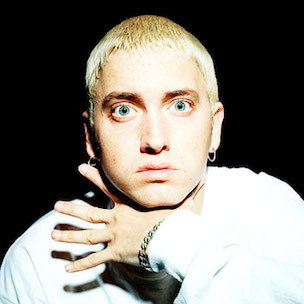
Honorable mentions...
I lay awake and strap myself in the bed
With a bulletproof vest on and shoot myself in the head (Bang)
I'm steamin' mad (Grr)
And by the way, when you see my dad (Yeah?)
Tell him that I slit his throat in this dream I had
There’s something casual about his fantasy murder of his father that really made the end stretch of this hit home. This is the closing of his final verse in “My Name Is”; he was never playing.
Man, ain't you ever seen that one movie “Kids”?
No, but I seen the porno with Sun Doobiest
Em’s devil to Dre’s angel.
My palms were sweaty, and I started to shake at first
Somethin' told me, "Try to fake a stomach ache, it works"
I screamed, "Ow, my appendix feel like they could burst
Teacher, teacher, quick, I need a naked nurse"
"What's the matter?"
"I don't know, my leg, it hurts"
"Leg? I thought you said it was your tummy"
"Oh, I mean it is, but I also got a bum knee"
"Mr. Mathers, the fun and games are over
And just for that stunt, you're gonna get some extra homework"
"But don't you wanna give me after school detention?"
"Nah, that bully wants to beat your ass and I'ma let him"
Even the teacher wanted him to get his.
Tired of bein' stared at
Tired of wearin' the same damn Nike Air hat
Never had to worry about that after this.
* * *
Death section:
- I tried suicide once and I'll try it again
That's why I write songs where I die at the end
- The disaster with dreads, I'm bad enough to commit suicide
And survive long enough to kill my soul after I'm dead
- The ill type, I stab myself with a steel spike
While I blow my brain out just to see what it feels like
'Cause this is how I am in real life
I don't want to just die a normal death, I wanna be killed twice
- And if you ever see a video for this shit
I'll probably be dressed up like a mummy with my wrists slit
- (I'm Slim Shady) So come and kill me while my name's hot
And shoot me 25 times in the same spot
* * *
I got a wardrobe with an orange robe
I'm in the fourth row, signin' autographs at your show
Tries to be unique and boastful... falls apart and gets self-deprecating.
I take a breather and sigh, either I'm high or I'm nuts
'Cause if you ain't tiltin' this room, neither am I
I mean, someone was... right?
We drive around in million-dollar sports cars
While little kids hide this tape from their parents like bad report cards
Eh.
If I had a million bucks, it wouldn't be enough
Because I'd still be out robbin' armored trucks
Unquenched desire for chaos.
A lyricist without a clue, what year is this?
Fuck a needle, here's a sword, body pierce with this
Always able to make a risky situation dicier.
Wait, what if there's an explanation for this shit?
What, she tripped, fell, landed on his dick?
Solid one liner.
Drug sickness got me doin' some bugged twitches
I'm withdrawin' from crack so bad, my blood itches
/eyes pop out
I don't speak, I float in the air, wrapped in a sheet
I'm not a real person, I'm a ghost trapped in a beat
Super fun hip-hop imagery.
#eminem#the slim shady lp#1999#music reviews#dr. dre#the eminem show#8 mile#detroit#beastie boys#loch ness monster#kid rock#music#rap#hip-hop#nostalgia#death#mummy#east detroit#nwa
0 notes
Text
What has Theater taught me? Ego indulgence and humility. Confidence and neurosis. Teamwork and competition. Empathy and retreat. Deception and honesty. The story of humanity in a microcosm. My story.
When I was a little kid, I learned that I could entertain and amuse my parents and my older sisters and get positive attention. As the youngest of four daughters, I was eager to exercise this talent to my advantage whenever my ego felt bereft. This helped me compensate for having fewer general skills and powers than my seniors. I couldn’t win at games or read or figure or run better than the rest, but I could sing and mime and look cute. I also was the only blonde, which helped.
When I was in second grade, I was very good at reading aloud “with expression”. I remember (and still have a written report about) my behavior when the class did a Reader’s Theater story about a snake. I told the teacher that I had a toy snake the class could use…provided that I got to read the lead role. Mrs. Richie declined my offer.
When I was in third grade, Miss White selected me to play Captain Hook in the musical Peter Pan. I was stunned. “I’m not a boy!” I protested. She told me privately that she thought I’d do a better job than any of the boys in the class. She could tell that I was a ham and would take risks to win attention and applause. And I did. In the final week of rehearsal, she gave me a monologue, a poem in rhyme that she would put into a particular scene if I could memorize it. I worked on it very hard. In the final performance, though, I skipped it altogether because I forgot where it was supposed to be inserted. To this day, I can rattle it off by heart. “Methinks I hear a spark, a gleam, a glimmer of a plan….”
The pirate theme lives on in my legacy.
When I was in seventh grade, I was double-cast as the lead in our pre-Bicentennial musical. I was the Spirit of ’75 for two performances (why the Music teacher and the Home Ec teacher chose this theme a year early is anyone’s guess). So was Kevin Bry. Yes, I played a man. Again. I vividly remember being in performance and feeling sort of bored with the dialogue the teachers had written to link together the songs the school chorus had rehearsed. So I decided to overact. “The sun still rises in the East….doesn’t it????!!” The audience roared. I think they were pretty bored, too.
When I was in High School, I took real Drama classes. I learned to dance, and I gained some confidence singing solos in the Concert Choir and the Jazz Choir. I became a lot more aware of my own vulnerability, too. I will never forget the Talent Show in my Junior year. I was in a leotard and character shoes, posed and ready to dance when the curtain went up. I was listening for our taped music to begin. And I heard nothing…until the audience started to howl and whistle. Suddenly, I felt naked and taunted. Then the music started, and I couldn’t concentrate on it. I was humiliated. My father and mother and boyfriend (who became my husband) were in the audience, hearing those students jeering at me. We all went out for ice cream afterward, and they tried to convince me that the performance wasn’t bad and the audience wasn’t being critical, but I just wanted to block the whole thing out of my memory forever. Obviously, I haven’t.
When I was in college, I was a Music major with Voice Performance as my Senior thesis. I auditioned for a part in a Gilbert and Sullivan operetta as a Junior. I hate auditions. I tend to choke when I know that someone is out there in those dark seats judging me. I am awesome in rehearsal – prepared, alert, willing and tireless. I was working hard, getting better at performance in my Master Classes and feeling more and more that my teachers and colleagues were actually rooting for me. But not at an audition. I was nervous, my mouth was dry, and my voice wavered. I could see my choir teacher in the house, talking with the casting director. I am sure that Prof. Lamkin was telling him that I was a very good soprano despite my weak scale runs in Mabel’s aria. I managed to land a part in the chorus.
That’s me, third lady on the left.
After graduating Phi Beta Kappa with my B.A. in Music, I auditioned for the Los Angeles Master Chorale. Worst audition EVER! Oh well. I found out that I was already pregnant. Got the role of Mother at age 22…and 24…and 26…and 28, and stayed off the stage for years. Meanwhile, my husband performed all over the country with a competitive Barbershop quartet and once at Carnegie Hall with the Robert Shaw Chorale Workshop. My children were on stage quite a bit, too. I was their coach. They were in all the school concerts and plays, took dance and music classes, and I watched and cheered and videotaped my heart out.
#gallery-0-16 { margin: auto; } #gallery-0-16 .gallery-item { float: left; margin-top: 10px; text-align: center; width: 33%; } #gallery-0-16 img { border: 2px solid #cfcfcf; } #gallery-0-16 .gallery-caption { margin-left: 0; } /* see gallery_shortcode() in wp-includes/media.php */
Then some neighbors invited me to help them start a Community Theater. I was tired of being in the background. I stepped up, and brought my oldest daughter with me. The next summer, I brought three of my children, my husband, and my mother-in-law as rehearsal accompanist. The next summer, it was just me, and my husband told me that he wouldn’t be able to solo parent while I was at rehearsal after this. Meanwhile, he was performing with the Chicago Master Singers and rehearsing every week. A few years later, my youngest daughter started taking theater classes with a group called CYT. The next summer, they did a community theater production, and I auditioned again and got cast. My oldest daughter played in the pit band. One of the performances was on my birthday, and the director brought me out on stage for the audience to sing for me during intermission. * shucks, folks! *
Joseph CCT
Joseph CCT
Joseph CCT
Joseph CCT
Carousel Cary CT
Hello Dolly Cary CT
Godspell Cary CT
Beauty & the Beast CCT
I ended up working for CYT and becoming their Operations Supervisor full time. In addition, I taught Voice classes and Musical Theater classes and Show Choir classes to kids aged 8-18 after work. All of my children and my husband participated at some point in the seven years I was employed there. I watched kids grow up in the theater, auditioning three times a year, growing in confidence and artistry, and questioning their identity every time.
“Who am I, anyway? Am I my résumé? That is a picture of a person I don’t know.” A Chorus Line
#gallery-0-18 { margin: auto; } #gallery-0-18 .gallery-item { float: left; margin-top: 10px; text-align: center; width: 33%; } #gallery-0-18 img { border: 2px solid #cfcfcf; } #gallery-0-18 .gallery-caption { margin-left: 0; } /* see gallery_shortcode() in wp-includes/media.php */
Accessing emotions, improvising with another person’s energy – initiation, response, vulnerability, defense. Mime, mimicry, mannerisms, artifice and accents. Playing in the muck of human behavior. This is Theater. It can be devastating and edifying. You can lose yourself and find yourself or never know the difference.
I wonder if I should regret raising up a bunch of performers and encouraging them in this charade or if I should be proud to have modeled survival in the arena. I don’t know. It’s complex. We’re complex. And maybe that’s the entire lesson.
© 2017, words and photographs, Priscilla Galasso
Theater Lessons What has Theater taught me? Ego indulgence and humility. Confidence and neurosis. Teamwork and competition. Empathy and retreat.
0 notes
Text
John Luther Adams Interview with SF Classical Voice
https://www.sfcv.org/events-calendar/artist-spotlight/john-luther-adams-gets-a-festival-at-sfjazz
John Luther Adams Gets a Festival at SFJAZZ
BY JEFF KALISS,
July 17, 2017
In a feature preceding the San Francisco Symphony’s performance of John Luther Adams’s The Light That Fills the World a couple of years back, SFCV contributor Brett Campbell stated that, “No composer has been more successful at using sound and music not just to portray place in a sonic way, like a realist painter or photographer, but also to make listeners feel the emotion of being there.” Adams, who has spent the largest part of his career in Alaska and now has homes also in Mexico and New York City, will be here for a full week at the end of this month, for the John Luther Adams Festival. It’s hosted by SFJAZZ and will be presented at that organization’s Miner Auditorium, as well as at Grace Cathedral and at Land’s End, above the ocean in the Golden Gate National Recreation Area.
“I’m convinced that this is the biggest such series of events devoted exclusively to my music that’s ever happened,” says the 64-year-old Adams, who started in music as a rock ’n’ roll drummer and percussionist at age 12 and went on to study at the California Institute of the Arts, graduating in 1973. He came to Alaska as an environmental activist, then moved there and began to express in musical form his affection for nature and for the culture of Inuit and Athabascan native peoples.
Adams performed as timpanist and percussionist with the Fairbanks Symphony Orchestra and the Arctic Chamber Orchestra, as well as in a progressive jazz trio, before focusing completely on composition, counting Lou Harrison among his major musical mentors. In 2014 and 2015, he won a Pulitzer and a Grammy (Best Contemporary Classical Composition) for Become Ocean, recorded by the Seattle Symphony, but this month’s festival will showcase his non-orchestral writing, for soloists and ensembles of various sizes. Following is a distillation of SFCV’s long and far-ranging conversation with Adams, who was in Santiago, Chile.
What are you doing down there?
My wife Cynthia and I have been here for the last two months, holed up in the desert, working on a large — [chuckles] even for John Luther Adams, this is large — new piece, for Lincoln Center. It’s called In the Name of the Earth, and it will premiere outdoors, in Central Park, in August of 2018, with upwards of one thousand singers involved. I’ll be spending most of the next year working on it. I’ve recently been returning to the human voice. My latest CD is a concert-length work, Canticles for the Holy Winds, which I composed for a fabulous group, The Crossing, the new music choir based in Philadelphia, just released by Cantaloupe Music. Of course, “in the name,” or “in nomine,” is a conscious reference to Christian liturgy. But in the place of the Father, the Son, and the Holy Ghost, I want to invoke the Earth, the Waters, and the Holy Winds.
I’d like to know about your own religious background. I also want you to tell us about the Native American and Inuit elements that inspire your music and the titles of some of your pieces, including two that we’ll hear in this festival. My older brother, Tony, taught in an Alaskan community college for many years, and over time his left-wing ideology seemed to have been informed by native spirituality.
That’s a great question, and not the usual. I was confirmed in the Episcopal Church and sang in the church choir, but I’ve never been a practicing Christian. My politics have always been way to the left, but I’ve never been red, I’ve always been green. My path is similar to your brother’s, in that I feel a deep resonance with what I understand of native lifeways and belief systems, from spending most of my life in Alaska. I’ve learned from the people there that everything is sacred and everything is quotidian, and we need to float back and forth between those two modes of being present in the world.
You’ve tried to help make that happen.
Absolutely, whether it’s taking music out of the concert hall and into the big world, or in my own experience. Like with a piece like Ilimaq [the Inuit term for a spiritual journey], for solo drummer and electronics, that’s being performing on the last night of the festival [at the Miner Auditorium, on July 30]. It’s inspired by Inuit traditions of the shaman’s drum. Yes, it’s a musical instrument, but it’s also a vehicle for traveling between this world and the spirit world, which is present with us all the time.
Will the solo drummer, Doug Perkins, be acquainted with these traditions?
Doug’s one of the foremost proponents of my music. He’s been the ringmaster of more performances of Inuksuit [from the Inuit term for a landmark, the free admission Land’s End performance takes place on July 29] than anyone else on the planet. But hopefully the music conveys all of that on its own terms. Because, frankly, if it doesn’t, then all the blather, all the verbiage, ultimately mean nothing.
Let me return to what you’ve been doing in Chile, and how that might give us insight into your process.
Each work involves different tools and processes. I use whatever tool is important, including computers: notation software, audio software. But in recent years, for a variety of reasons, I’ve made a concerted effort to return as much as possible to pencil and paper, and I’m very particular: I use a pencil that is no longer made, friends have been buying them up, whenever they can, at exorbitant prices, and I use custom-made 11-inch by 17-inch manuscript paper in landscape format. But even before I get to pencil and paper, I try to hold a piece in my mind’s ear as long as I possibly can. It enforces a kind of discipline on my imagination, and keeps me from just manipulating things.
In your recorded pieces, I’m finding colors and tones. I wonder if you’re inherently synesthetic.
You know, Jeff, I think we all are. I don’t have that kind of Messiaen or Scriabin synesthesia, but my friend David Abram, the philosopher, says that our senses want to be whole, in the presence of any strong stimulation or excitement. There’s a kind of vacuum, in our bodies, in our minds, in our spirits, perhaps, that needs to be filled. That’s the way in which I’m synesthetic.
Maybe you can get us there better than when we’re stuck in a concert hall chair riding yet another symphonic warhorse.
I hope it’s not a heavy-handed mission, but it’s something I want for myself. Our lives, our culture, our world, the human world, has become dangerously, potentially fatally fragmented, and we’ve got to put things back together. And we damn well better do it in a hurry, because Antarctica is coming apart now. I hope it can happen in a gorgeous space like the SFJAZZ Center, it’s a more promising environment in which to experience this. But it’s also part of the reason why I’ve moved outside, so that in experiencing Inuksuit at Land’s End, people from San Francisco, or from the other side of the Bay, may experience a place they know well in a new way. And I’m thrilled about installing [the electronic soundscape] Veils and Vesper, one of my favorite pieces, in Grace Cathedral [on July 29], where you might see colors you haven’t seen before, or not in a while.
How did this festival come to be?
Randall Kline, the godfather of SFJAZZ, is a force of nature, and he approached me; he was politely persistent. It would be fine in a classical music venue, but I particularly like that it’s happening outside the classical music ghetto, if you will. Because this is where the audience for this new music is, particularly with younger people who don’t care whether something is classified as classical or jazz or anything else. All these listeners care about is haring something that moves them, something that touches them, maybe something they haven’t heard before. [Kline and Adams will host a Listening Party at the Miner Auditorium, to open the festival on July 26.]
Will you be functioning anything like a conductor?
No. I used to perform my own music regularly, I had a series of ensembles, but it’s not my job. I’ll come to San Francisco a couple of days early, visit all the sites, and begin to fine-tune how we’ll present each of the pieces in each of the spaces. Then I’ll be in rehearsals with the JACK Quartet, and Doug Perkins, and with the ensemble for Inuksuit. Once I act as a sort of landscape architect for designing the overall shape of the performances, I’ll be working with the audio technicians as a sort of sound designer. My music is all about sound and also all about space, not just musical, poetic, or metaphorical space, but physical, acoustic, volumetric space.
It looks like Inuksuit will involve the largest ensemble, if not also the biggest audience.
It can be performed with anywhere from 9 to 99 musicians, in multiples of three, because there are three different families of instruments — metal, drums, and air, in a way corresponding to earth, water, and wind — and you have to have an equal number. I know Doug started recruiting some time ago, and I think we’re shooting for somewhere around 66. But it’s not a loosey-goosey hippy-dippy happening, it’s a serious musical composition and performance. Though it is open-ended in its form, and flexible in its scale.
What about the role of the listeners/audience? Will they be free to wander around the Sutro Baths?
I try to leave it completely undetermined. What I want for you is what I want for myself, which is an invitation to enter into a place, into a world that may be ravishingly beautiful, may be a little bit scary, some combination of the two, and to have the freedom to take your own journey. Find a spot and root yourself, or move the whole time and just follow your ears. I’m hoping to give you the opportunity to experience more fully your own presence, your own place in the world. And if it’s not putting too grandiose a point on it, I’d say that’s a kind of model of how I imagine human society might be. If we lived in a society in which we all felt more deeply embedded and responsible and empowered, I think problems like global warming and income inequality and injustice would be dealt with more immediately.
Which should also involve deep listening, to each other.
Which is a very, very hard thing to do.
Will your pieces make special demands on the Miner Auditorium?
I think so, including lighting demands. Take the world premiere of the new string quartet,Everything That Rises [July 28]. It’s really four simultaneous solos, and the musicians [the JACK Quartet] will be deployed around the house, around the audience, in four different directions on four different levels. The same will be true for Ilimaq, the big percussion work with electronics. We’ll do that as surround sound.
How has it been to have a chamber ensemble like JACK in your stable?
A number of my large ensemble works included a string quartet, but I’d never imagined I’d write a string quartet [per se]. Then, while I was teaching at Harvard for a semester, I heard the JACK Quartet, and I instantly understood how I might make the medium my own. The result was The Wind in High Places [composed in 2011, to be performed by the JACK on July 27], which is a 20-minute piece composed in natural harmonics on open strings. A couple of years later, a second quartet followed, Untouched [also on the July 27 program], a further exploration of that Aeolian sound world. That was written for Brooklyn Rider with JACK in mind, and JACK is recording it this weekend. The third quartet was Canticles of the Sky, and they finally got to touch the fingerboards. Now comesEverything That Rises, where they play stopped tones, but it’s also in [just intonation] tuning. It’s the harmonic series superimposed on itself, going up the spiral, and as you get higher and higher, the intervals get smaller and smaller, so they get more dissonant; but of course they’re acoustically perfect dissonances, so they don’t have that edgy growl. The JACK is recording it this weekend in Banff, but San Francisco is getting the premiere performance.
I assume that after the prep work, you’ll be free to be out there among the rest of us listeners?
I’m excited about meeting the listeners, particularly those who may be regulars at SFJAZZ but maybe haven’t heard that much of this kind of music, whatever we call it now.
After the spacious inspirations of Alaska and Mexico, have you found inspirational soundscapes in New York?
I’m not a city boy. Cynthia and I have a lovely little one-bedroom apartment in the liveliest corner of what the real estate developers are trying to call SOHA, which is South Harlem. There’s a certain kind of work I can do in New York, but I can’t do the deep, slow, foundation work, so we’ve been spending as much time as we can in undisclosed remote locations, so I can get some serious work done. But last year I did a little piece that is my one and only New York City piece. It was a commission from the Metropolitan Museum, which took over the old Whitney Museum building when the Whitney moved downtown. They asked me to make a little sound log, composed from recordings that were “crowd-sourced” in the streets between the two buildings. It’s called Soundwalk 9:09.
And the Beatles version which preceded it, “One After 909."
“Move over once, move over twice.”
I see you’ve held on to your rock cred. What’s in the offing, aside from that Central Park piece?
Next March, in Seattle, Ludovic Morlot and the Seattle Symphony will give the world premiere performance of Become Desert, which completes the trilogy that began withBecome River and Become Ocean. This will be a huge piece, the same length as Become Ocean but with five separate ensembles, including choir. And they’re bringing it to Cal Performances in April.
Will Cynthia be here with you for your festival? Does she have a part in your creations, aside from as wife and mother?
I wouldn’t go anywhere without her, and oh my goodness, she does indeed! She is very much my muse, my foil, my best friend, my compatriot from the environmental crusade; we have shared so much in our lives together. And fortunately, she’s not in music at all. [Cynthia Adams is the founder and CEO of GrantStation, which helps nonprofits secure funding. The Adams’s son, Sage, is GrantStation’s lead programmer.] Cynthia is completely adventurous and irreverent. She’s become a kind of collaborator, not in an obvious way but that we’re having these experiences in wild country, sharing our solitude. She’s a fantastic observer, because she is smart, and incredibly patient. She brings to being present in a place that quality of intense attention that I want to bring to my work as composer, and that I hope to inspire for you, as a listener to the music.
Jeff Kaliss has written about opera and other classical forms for the MarinIndependent-Journal and The Oakland Tribune. He is based in San Francisco, and also covers jazz, world music, country, rock, film, theater, and other entertainment. The second edition of his authorized biography of Sly & the Family Stone was published by Backbeat Books.
0 notes
Text
The Movies I Loved This Oscar Season
Thursday nights are the best time to go to a movie. I went to so many Thursday night movies this season I lost count. It was great. I heard a couple taking turns making fun of Natalie Portman's accent in 'Jackie.' I heard some teens say 'The Witch' "f**king sucked." I lost one of my gloves under a seat at FilmStreams during a showing of '20th Century Women' and I'm pretty sure it's still down there somewhere. I cried several times (not because of the glove). Later in the season, Thursday Night Movies became a good two-hour escape from the late-capitalist nightmare that was our election.
There were many movies I'd have liked to have seen but didn't — 'Fences', 'I Am Not Your Negro' and 'Toni Erdmann' chief among them — but alas I am a poor journalist on a tight budget who has a busy schedule and many hot dates to go on. (JOKES) Here are the ones I did see and liked the best:
******
25. The Neon Demon
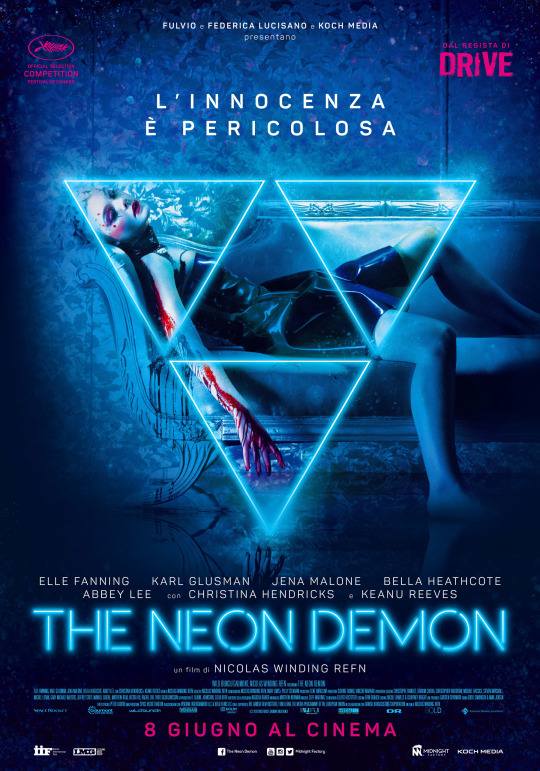
Nicolas Winding Refn has always been a brand — how long has he been putting his initials in the opening credits of his movies? — a brand that traffics entirely in synth pop, a-little-too-on-the-nose metaphors and empty provocation, but a brand nonetheless. He’s out of ideas and selling knock offs now, but I’m still buying.
24. 10 Cloverfield Lane
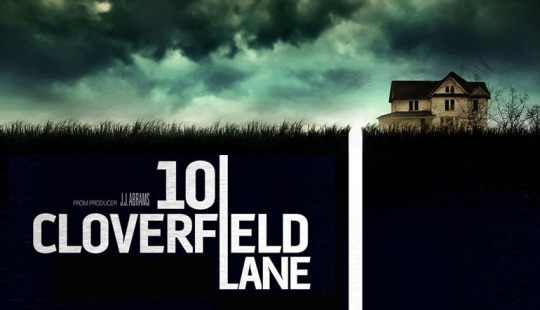
23. Midnight Special
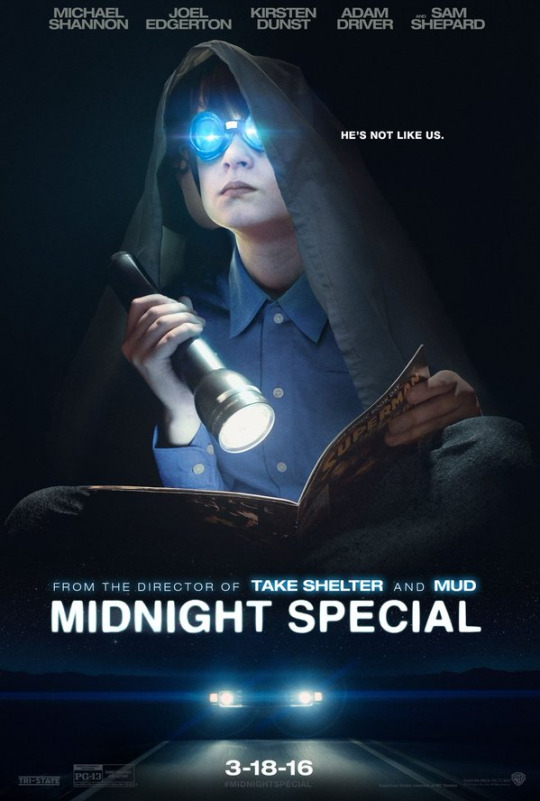
Sticking the landing on sci-fi movies is hard. These two would have been a lot higher on this list if they had. Still, I was fully in for about 90 minutes.
22. The Witch
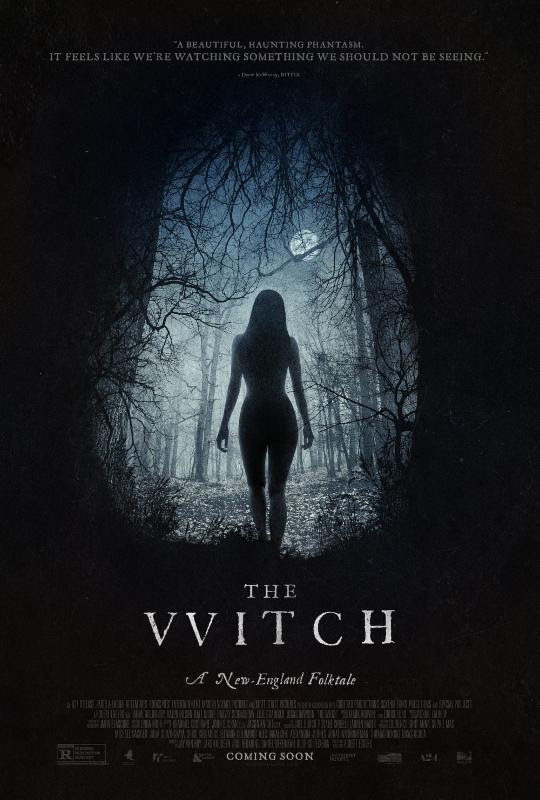
A horror movie that has exactly zero scary moments and does its damage as a slow-burn parable about radicalism. Some teens leaving the same screening as me said it best: “What the f**k was that? It wasn’t even scary.”
21. Everybody Wants Some!!
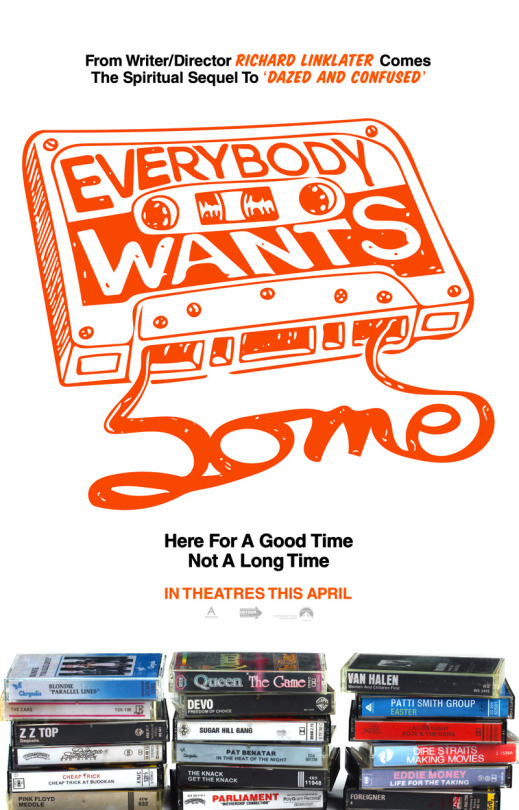
Some of this was problematic but dudes lip syncing ‘Rapper’s Delight’ while tooling around + baseball trash talk = a great sports movie.
20. Star Wars: Rogue One
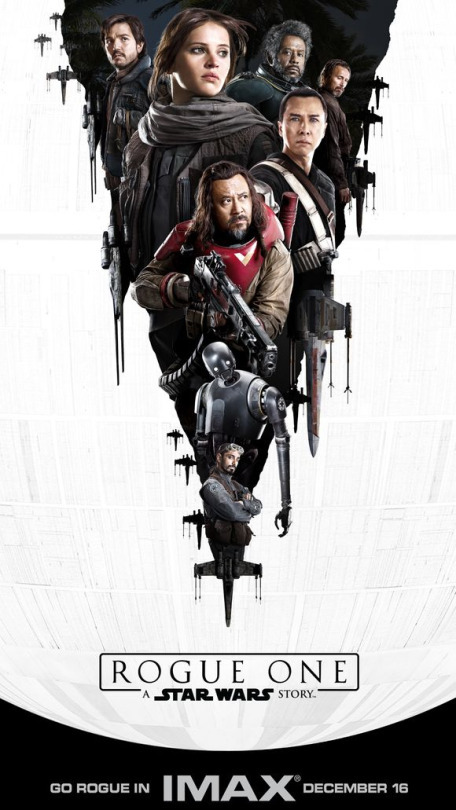
Luke Skywalker sucks. This is maybe not The Best Star Wars but it is the purest distillation of what I like about the franchise and the last hour kicks so much ass.
19. La La Land
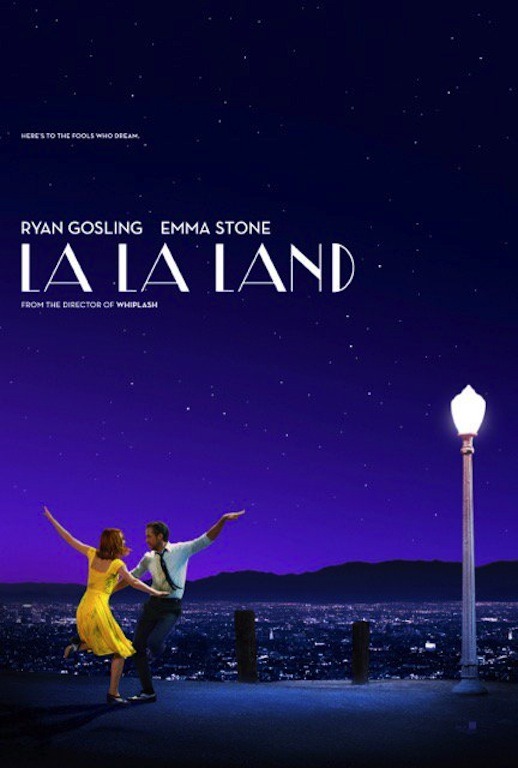
A totally fine and gorgeous movie that I loved in the theater and took almost nothing away from when I thought about it a week later! Seriously, how is this the Oscar frontr– **is attacked by a mob**
18. Krisha
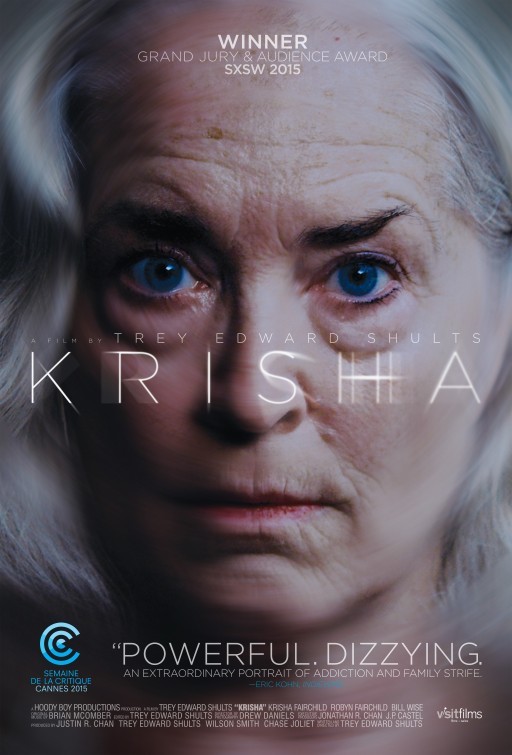
This is definitely a monster movie. Though I can’t tell who the monster is. Is it Krisha or the people who put the expectations on her? Almost everyone in this movie was at fault in some way and none of the transgressions would be that serious or uncommon in an ordinary family gathering — and that’s what makes it scary.
17. Oasis: Supersonic
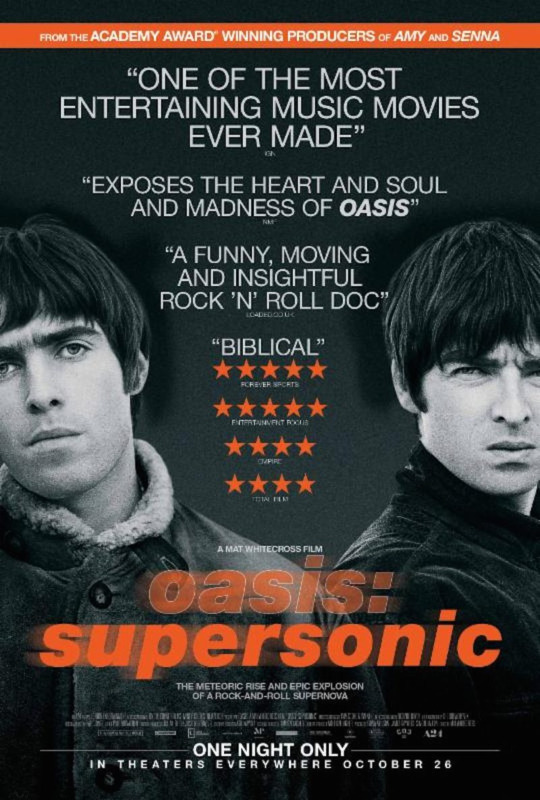
“Writing songs is difficult; talking shit is easy.” I hope the Gallagher brothers live forever.
16. Popstar: Never Stop Never Stopping
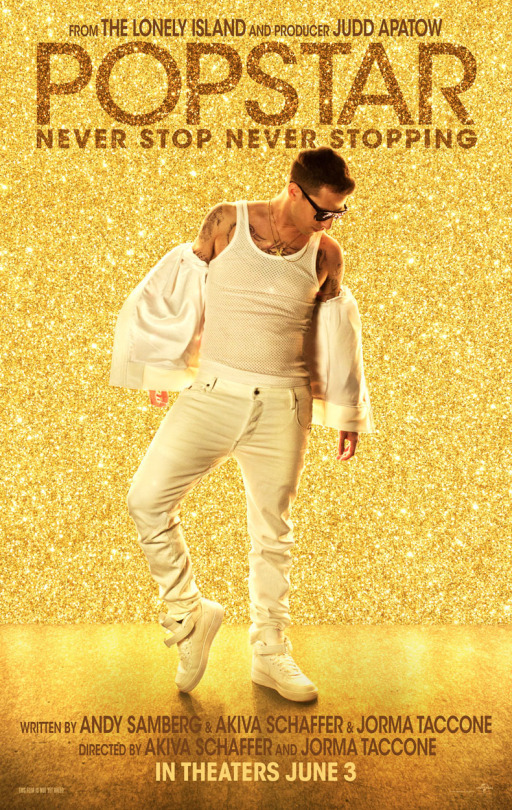
This and the Oasis documentary would make a good double feature. The only thing that you need to know about how absurd things get: A song about how the Mona Lisa is “the original basic bitch” is maybe like the third-funniest one.
15. Sing Street
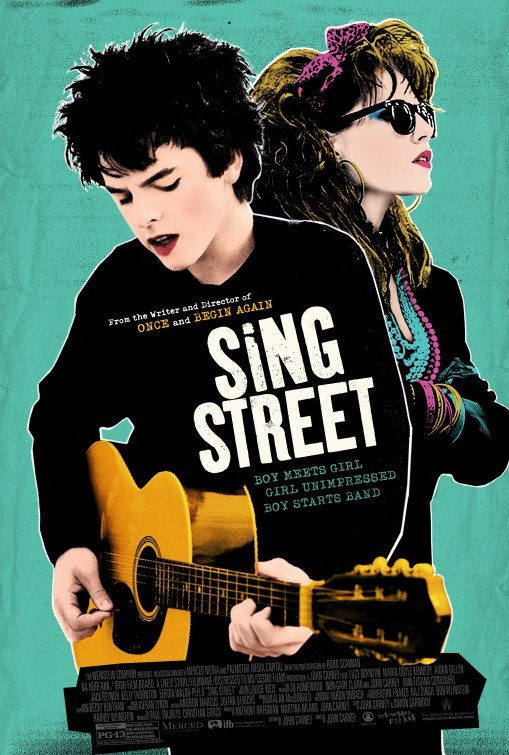
Everybody’s done something stupid because they have a crush. It happens to me like once a week. I thought this did a much better job of expressing what ‘La La Land’ was trying to without having Ryan Gosling explain jazz to women.
14. Christine
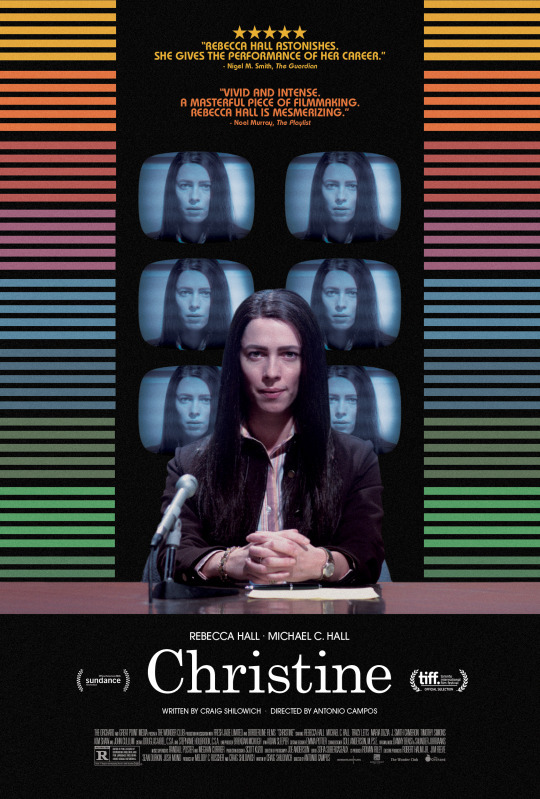
This has almost nothing going for it outside of Rebecca Hall and was still the most gutting thing I saw this year. I think I was grimacing or biting my hand to keep from screaming the whole time.
13. Love and Friendship
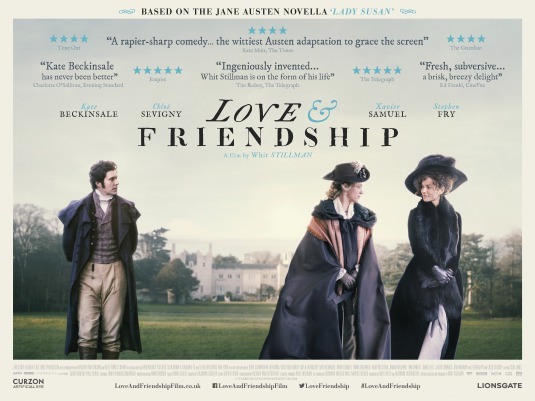
As a big fan and practitioner of pettiness, cattiness, jealousy, shallowness, greed, ego, being judgemental, side-eye, selfishness, gossip, manipulation, deceptiveness and lying, I thoroughly enjoyed this movie.
12. Hell or High Water
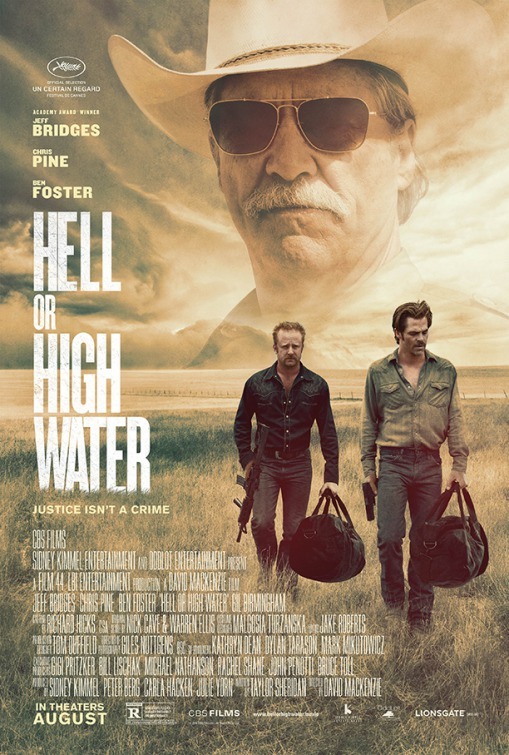
Miss me with the Trump subtext and casual racism, but I am very here for Chris Pine and Jeff Bridges codedly threatening each other through Texan drawls in rocking chairs.
11. The Invitation
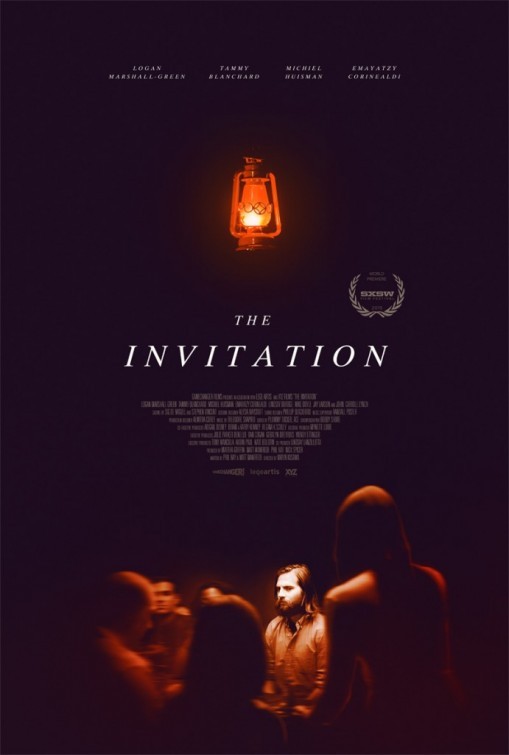
Never go to parties, they will literally kill u.
10. The Nice Guys
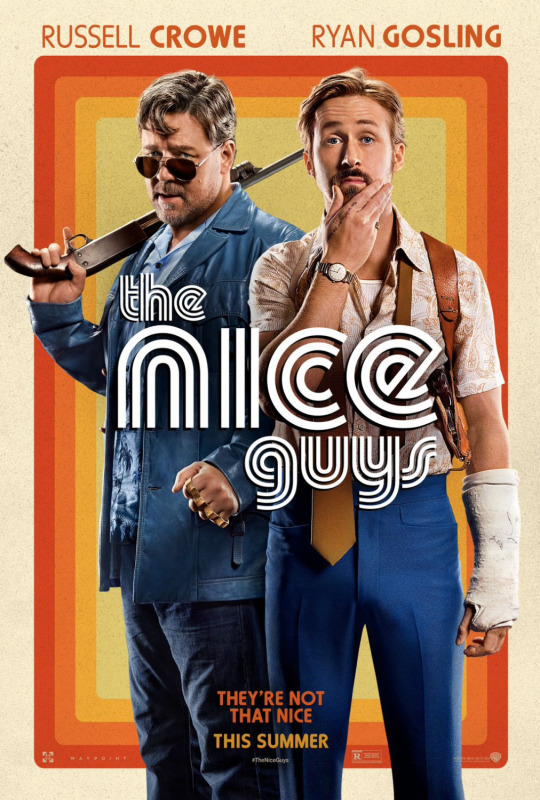
Gosling is the best physical comedy actor of our generation. His best acting move is “jumping back in surprise” and I absolutely mean that as a compliment.
9. Manchester By The Sea
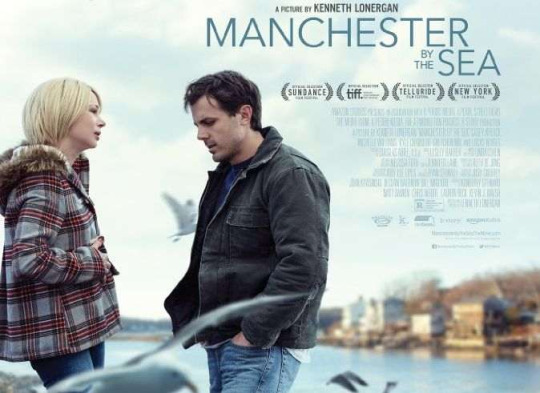
I don’t think this movie had anything to say — surprising because it was directed by a guy primarily known as a writer? — but its high notes are better than just about anything else in this cycle.
8. The Lobster
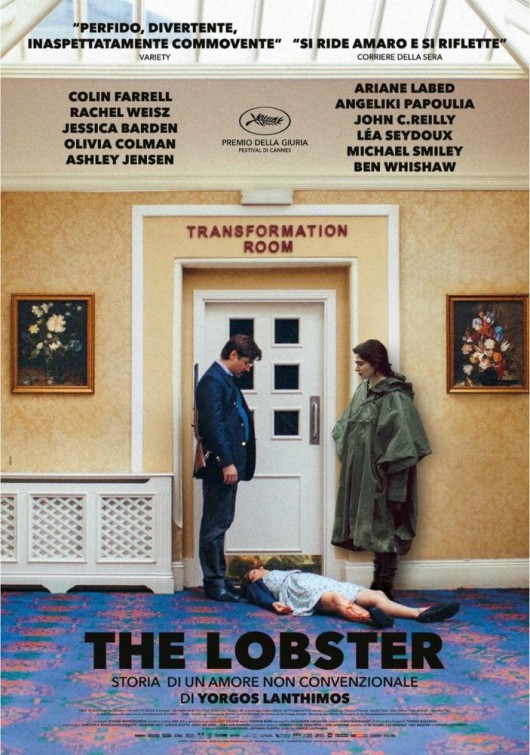
“We all dance by ourselves. That’s why we only listen to electronic music.”
7. Jackie
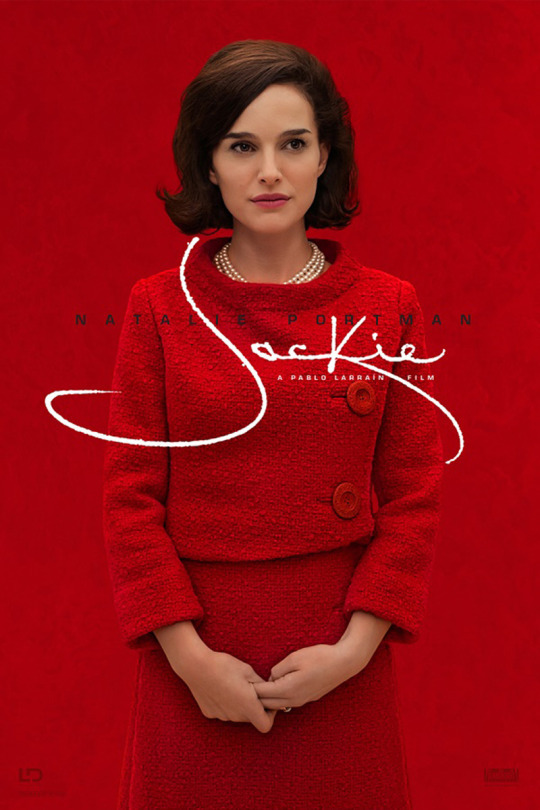
Natalie Portman is so good and committed to this that it sometimes feels exploitative to even be watching at all. Heartbreaking to see a person lose everything — time, legacy, work, status, love, truth — in an instant.
6. American Honey
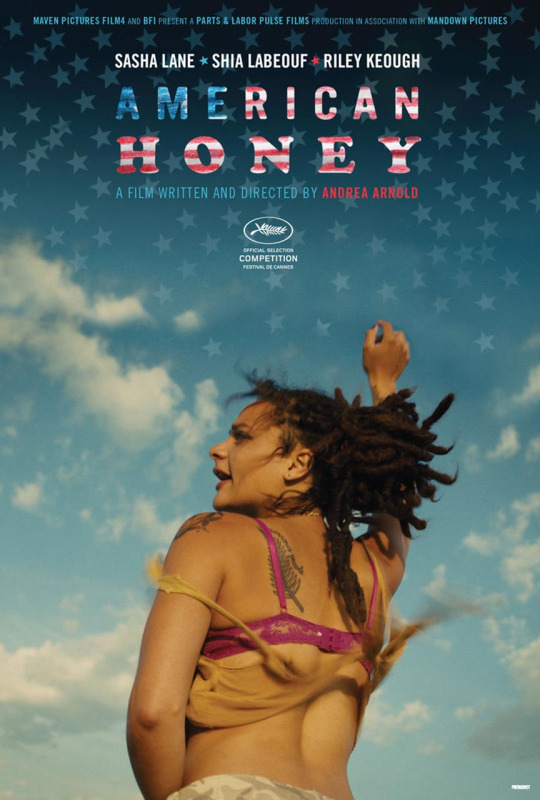
Who even needs focus or form when you have this much feeling?
5. O.J.: Made in America
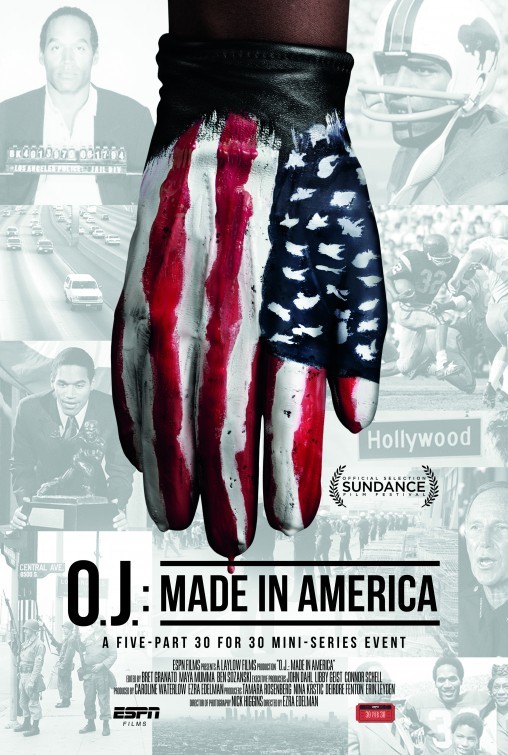
I watched all eight hours in one sitting on a June day when my A/C was broken, and I would have gone another eight. Ezra Edelman does a good job of bringing you out of the spectacle by reminding you that TWO PEOPLE DIED.
4. A Bigger Splash
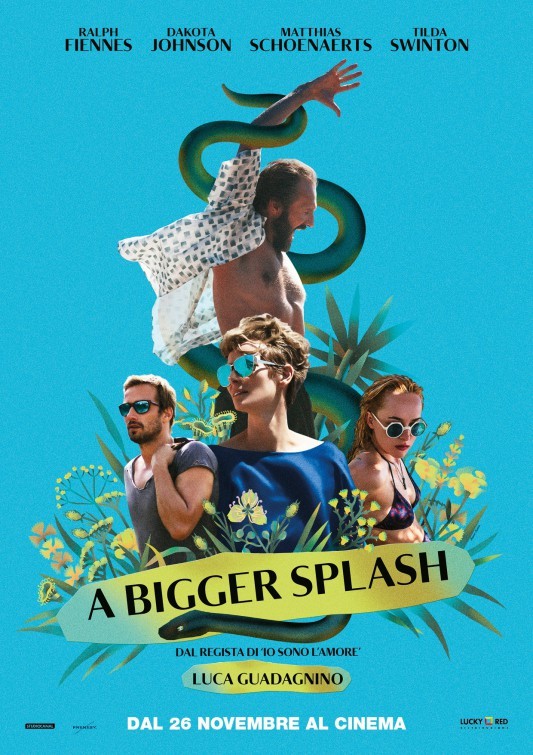
This pretended to be a lot of different things — a meditation on fame, a Fellini pastiche, an all-time Cool Sunglasses Movie, a Ralph Fiennes dancing showcase — but none of those ever overshadowed the dread that permeated or the feeling that every bitten tongue or sigh was moving things closer to a cataclysm. It ultimately was ‘Strangers on a Train’ about the people who know us the best.
3. Moonlight
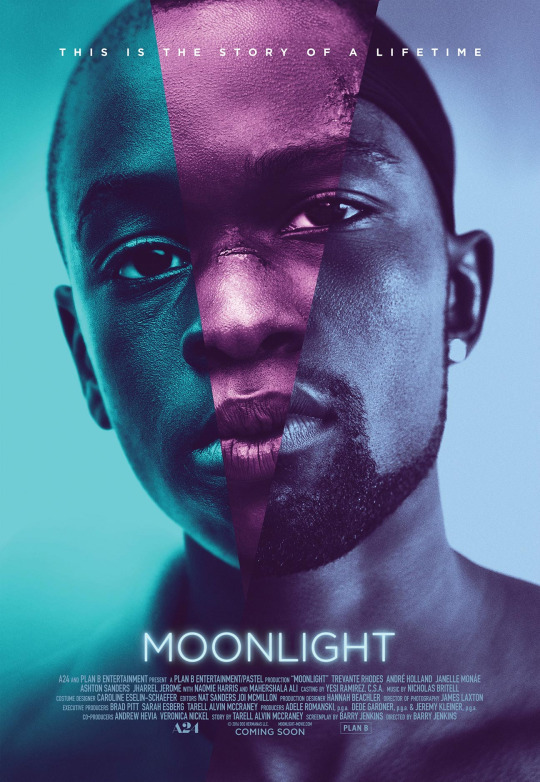
There isn’t a thing about this movie that wasn’t beautiful.
2. Arrival
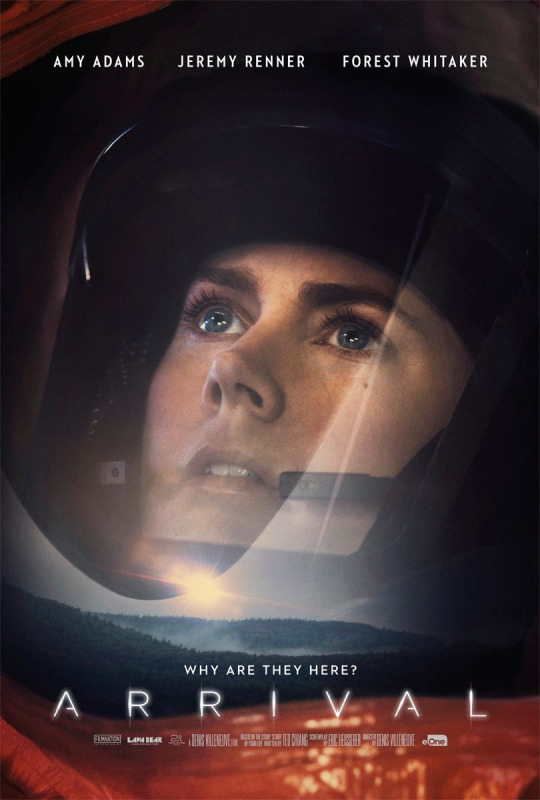
Ooo0oooOO0oo (that’s Heptapod for “I adore ‘Arrival’”).
Denis Villenueve does this thing I love where he undermines the ostensible premises of his movies. He’s been unsympathetic in the past: The played-up parts of Prisoners were about the selfish obsessions of individual men instead of the hunt for lost children; Sicario was never really as focused on the innocents affected by the drug trade as it was on an allegory about the nature of truth. But with Arrival he inverts it, rendering a large-scale sci-fi mind-ruiner into a beautiful meditation on parenthood and experience. I loved it.
Also if Bradford Young doesn’t win the cinematography Oscar somebody’s gonna have to hold me back.
1. 20th Century Women
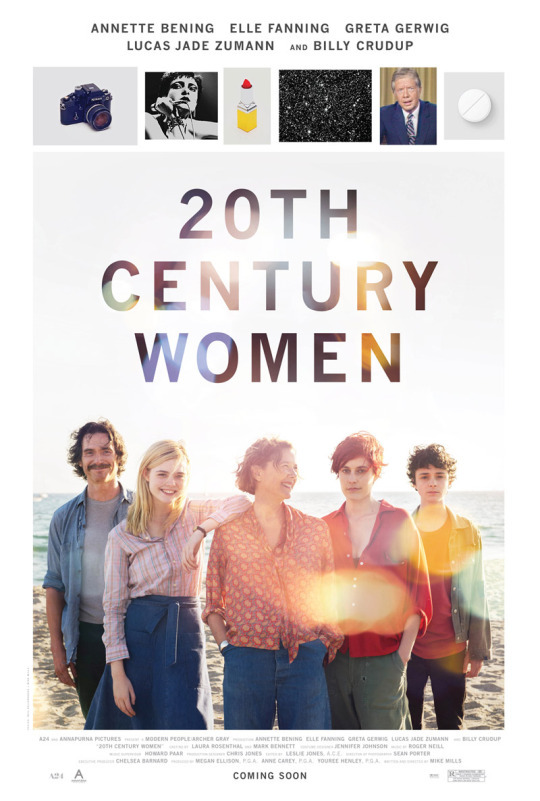
I love my mom, Talking Heads and David Bowie. The shot where Annette Benning drives the car up the hill with her son alongside on his skateboard made me feel about eight different emotions at once and made me want to scream.
******
Honorable Mention: Hail Caesar!, High Rise, Patterson, Our Kind of Traitor, Creative Control, Ghostbusters, The Shallows, Dr. Strange
******
Come back next year when this list is just ‘Blade Runner 2049′ listed 25 times. Thanks!!!
0 notes